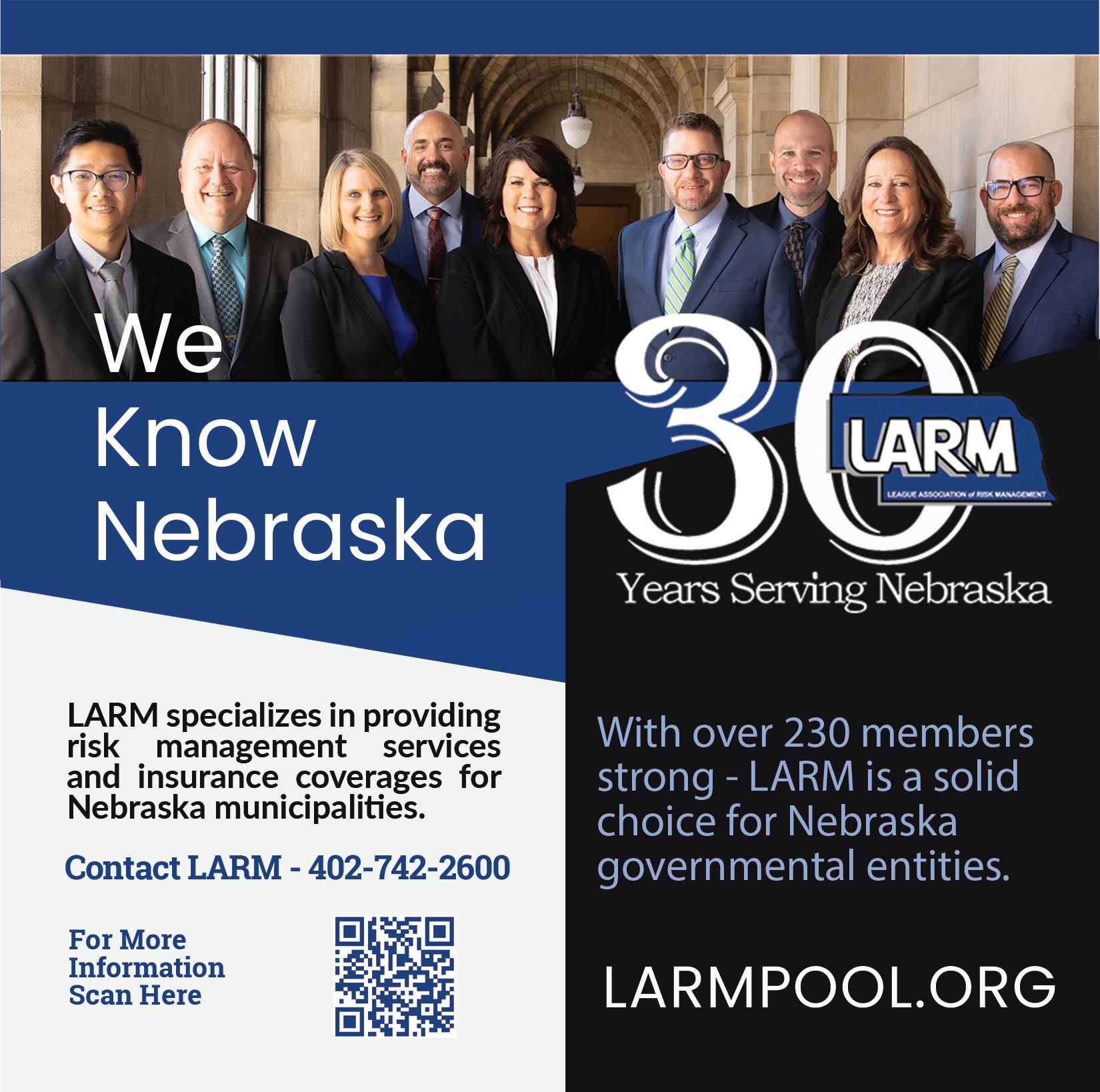2025 legislative session recap
City of Columbus launches a podcast

Official Publication of the League of Nebraska Municipalities
Resources for rural communities with water quality concerns JULY 2025


2025 legislative session recap
City of Columbus launches a podcast

Official Publication of the League of Nebraska Municipalities
Resources for rural communities with water quality concerns JULY 2025

The NEBRASKA MUNICIPAL REVIEW (ISSN 0028–1906) is published monthly and the official publication of the League of Nebraska Municipalities, an association of the cities and villages of Nebraska, published at 1335 L St., Lincoln, Nebraska 68508. Subscription rates are $5 per single copy — $50 plus tax for 12 issues. Periodicals postage paid at Lincoln, Nebraska. Views of contributors, solicited or unsolicited, are their own and not to be construed as having the endorsement of the League unless specifically and explicitly stated by the publisher
The NEBRASKA MUNICIPAL REVIEW is a nonprofit publication administered and supervised by the League of Nebraska Municipalities. All revenue derived from the publication is used by the association to defray publication costs.
League of NE Municipalities staff 402-476-2829 • www.lonm.org
L. Lynn Rex, Executive Director
Christy Abraham, Legal Counsel
Lash Chaffin, Utilities Section Director
Cherie DeFreece, Admin Assistant/ Membership Services Assistant
Brenda Henning, Membership Services Assistant/ LIGHT Admin Assistant
Ethan Nguyen, LNM/LARM Information Technology Manager
Shirley Riley, Membership Services Director
Jackson Sash, Utilities Field Representative/Training Coordinator
Ashley Wolfe, Marketing/Communications Director
LARM staff
Dave Bos, Executive Director
Tracy Juranek, Asst. Executive Director, Customer Service Specialist
Diane Becker, Communications/Marketing Director
Kyla Brockevelt, Executive Administrative Assistant
Drew Cook, Customer Service Specialist
John Hobbs, Loss Control Specialist
James Kelley, Loss Control Specialist
Fred Wiebelhaus, Loss Control/Claims Manager
POSTMASTER: SEND ADDRESS CHANGES TO NEBRASKA MUNICIPAL REVIEW, 1335 L STREET, LINCOLN, NEBRASKA 68508.
Have an idea, project or opinion to share? The League welcomes member articles, information, and op-eds.
Want to reach local decision makers? The League can help you get your message out to Nebraska’s 3,500+ municipal officials.To learn more, contact Ashley Wolfe at 402-476-2829 or ashleyw@lonm.org
President Marlin Seeman, Mayor, Aurora
President-Elect Bryan Bequette, Mayor, Nebraska City
Vice President Joey Spellerberg, Mayor, Fremont
Past President Deb VanMatre, Former Mayor, Gibbon
Directors
Leirion Gaylor Baird
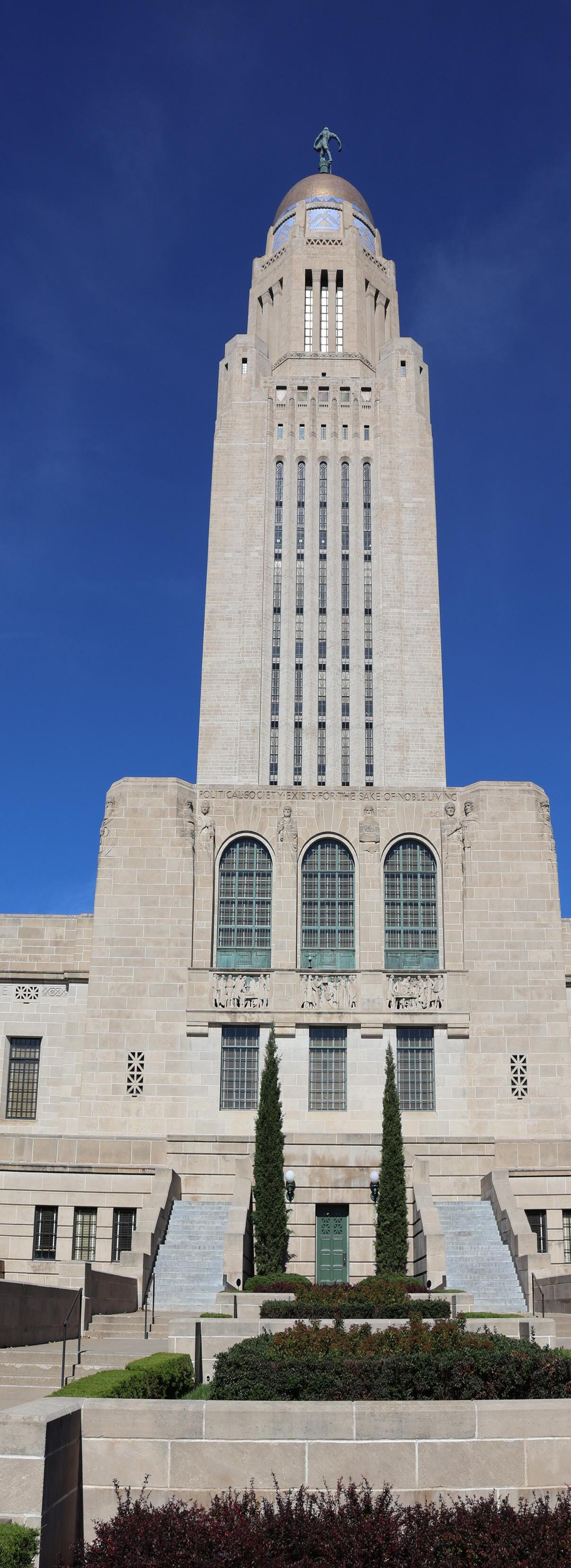

Kellie Crowell elected to serve on the Board of Directors for the International Institute of Municipal Clerks
The City of Columbus launches ‘Louped In’ podcast to inform, inspire, and connect residents
Nebraska helps to secure $720 million from eight opioid drug makers
NMPP Energy honors Jeff Kohrs of Nebraska City with service award
Breaking ground: City of Papillion kicks off year-long park renovation
17
Pawnee City leaders think outside the box in effort to draw people to community
Grand Island Fire Department Division Chief earns global recognition
CISA: Free insider threat mitigation workshop
USDA RD: Water and wastewater improvement opportunities for Nebraska communities
Bike Walk Nebraska: New bills supporting biking and walking in your community
Mayor, Lincoln
Sharon Powell Village Board President, Utica
Jim Bulkley Mayor, Columbus
Betsy Vidlak Mayor, Scottsbluff
David Black
Mayor, Papillion
Larry Evans Mayor, Minden
Rod Petersen Mayor, Louisville
John Ewing
Mayor, Omaha
David Scott City Manager, Sidney
Janine K. Schmidt
CMC/Treasurer, Morrill
Layne Groseth City Administrator/Utilities Manager, North Platte
Affiliated Sections
City Managers
Clerks
Munic. Accounting & Finance
Vacant
Tami L. Comte, David City
Becky Erdkamp, Exeter
Fire Chiefs Dennis Thompson, North Platte
Utilities Pat Heath, Gering
23 28 30
AARP grants to enhance livability in Nebraska municipalities
Center for Rural Affairs: Resources that may help rural communities with water quality concerns
Hemingford, Bridgeport, and Gothenburg awarded Project of the Year honors
The President's Message - President Marlin Seeman, Mayor of AuroraDon’t miss the 116th League Annual Conference featuring important topics, outstanding speakers, and numerous opportunities for networking!
The Legal Corner by Andrew Willis, Cline Williams Wright Johnson & Oldfather, L.L.P. - Picking up the PACE: the Nebraska Property Assessed Clean Energy Act
LARM – Holding a community event Ask LNM – Topic: Municipality-owned utility disconnection
The 78th annual Papillion Days took place June 11-15. Each year, the event brings the Papillion community together for a parade, carnival, fireworks, music, and much more!
Larger Cities Legislative Committee
John McGhehey, Mayor, Alliance
Seth Sorensen, City Manager, Alliance
Tobias Tempelmeyer, City Administrator, Beatrice
Rusty Hike, Mayor, Bellevue
Jim Ristow, City Administrator, Bellevue
Mindy Rump, Mayor, Blair
Phil Green, City Administrator, Blair
Tom Menke, City Manager, Chadron
Jim Bulkley, Mayor, Columbus
Tara Vasicek, City Administrator, Columbus
Dave Bauer, Mayor Crete
Tom Ourada, City Administrator, Crete
Joey Spellerberg, Mayor, Fremont
Jody Sanders, City Administrator, Fremont
Kent Ewing, Mayor, Gering
Pat Heath, City Administrator, Gering
Roger Steel, Mayor, Grand Island
Laura McAloon, City Administrator, Grand Island
Mike Evans, Mayor, Gretna
Paula Dennison, City Administrator, Gretna
Mark Funkey, City Administrator, Hastings
James Liffrig, Mayor, Holdrege
Chris Rector, City Administrator, Holdrege
Brenda Jensen City Manager, Kearney
Brad DeMers, Asst. City Manager, Kearney
Doug Kindig, Mayor, La Vista
Kevin Pokorny, Director of Administrative Services, La Vista
John Fagot, Mayor, Lexington
Joe Pepplitsch, City Manager, Lexington
Margaret Blatchford, Assistant City Attorney, Lincoln
Riley Slezak, Senior Advisor to the Mayor, Lincoln
Linda Taylor, Mayor, McCook
Nate Schneider, City Manager, McCook
Bryan Bequette, Mayor, Nebraska City
Perry Mader, City Administrator, Nebraska City
Justin Webb, Council Member, Norfolk
Scott Cordes, City Administrator, Norfolk
Brandon Kelliher, Mayor, North Platte
Layne Groseth, City Admin./Utilities Manager, North Platte
Steve Krajewski, Mayor, Ogallala
Kevin Wilkins, City Manager, Ogallala
Thomas Warren, Chief of Staff, Omaha
David Black, Mayor, Papillion
Amber Powers, City Administrator, Papillion
R. Paul Lambert, Mayor, Plattsmouth
Emily Bausch, City Administrator, Plattsmouth
Don Groesser, Mayor, Ralston
Brian Kavanaugh Council Member, Ralston
Jack Cheloha, City Administrator, Ralston
Art Lindberg, Mayor, Schuyler
Lora Johnson, City Administrator, Schuyler
Betsy Vidlak, Mayor, Scottsbluff
Kevin Spencer, City Manager, Scottsbluff
Joshua Eickmeier, Mayor, Seward
Greg Butcher, City Administrator, Seward
Brad Sherman, Mayor, Sidney
David Scott, City Manager, Sidney
Lance Hedquist, City Administrator, South Sioux City
Jill Brodersen, Mayor, Wayne
Wes Blecke, City Administrator, Wayne
Barry Redfern, Mayor, York
Dr. Sue Crawford, City Administrator, York
Smaller Cities Legislative Committee
Chaired by Tom Goulette, City Administrator of West Point
Lisa Schroedl, City Administrator/Clerk/Treasurer, Ainsworth
Jessica Quady, City Administrator, Ashland
Marlin Seeman, Mayor, Aurora
Crystal Dunekacke, City Administrator/Economic Developer, Auburn
Chris Anderson, City Administrator, Central City
Andrew Lee, Admin/Clerk/Treasurer, Curtis
Tami Comte, Clerk/Treasurer, David City
Alan Michl, Chairperson, Exeter
Becky Erdkamp, Clerk/Treasurer, Exeter
Kyle Svec, City Administrator, Geneva
Matt Smallcomb, City Administrator, Gibbon
Gary Greer, City Administrator, Gothenburg
Jana Tietjen, Clerk, Hebron
Barb Straub, Admin/Clerk/Treasurer, Hemingford
Kelly Oelke, City Administrator, Hickman
Janine K. Schmidt, CMC/Treasurer, Morrill
Sandra Schendt, Clerk/Treasurer, Nelson
David Russell, Director of Gov. Affairs, NMPP Energy
Mandy Hansen, Government Affairs Liason, NMPP Energy
Sandy Kruml, Clerk/Treasurer, Ord
Mike Feeken, Mayor, St. Paul
Sandra Foote, Council Member, Superior
Jeff Hofaker, City Administrator, Sutton
Jessica Meyer, City Administrator, Syracuse
Kelly Adamson, City Council Member, Tekamah
Sharon Powell, Village Board President, Utica
Kyle Arganbright, Mayor, Valentine
Melissa Harrell, City Administrator, Wahoo
Desiree Soloman, City Attorney, Waterloo
Stephanie Fisher, City Administrator, Waverly
Tom Goulette, City Admin./Utility Superintendent, West Point
Randy Woldt, Utilities Superintendent, Wisner
Robert Costa, Community Planner, Yutan

(All statute citations to Revised Statutes of Nebraska)
CITIES OF THE FIRST CLASS
• Within 10 days following meeting or before next meeting (whichever is sooner) Clerk to have minutes available for public inspection. (84-1413)
• Within 15 days of Passage Clerk publishes ordinances passed. (16-405)
• Within 30 days of Council meeting Clerk publishes official proceedings of meeting, including claims. (19-1102)
• On or before September 1 City Council determines final allocation of levy authority for its subdivisions (77-3443)
• On or before September 30 File adopted annual or biennial budget statement with County Clerk and State Auditor’s Office. (13-508)
• File information on tradenames and interlocal agreements with State Auditor’s Office (13-513)
• Within 20 days after end of month Treasurer files monthly financial report. (16-318)
• Last Day End of Fiscal Year (16-701)
• * * Clerk must prepare agenda prior to next Council meeting. (84-1411)
• No later than 90 days after end of fiscal year Report on collection and use of occupation taxes (18-1208)
CITIES OF THE SECOND CLASS
• Within 10 days following meeting or before next meeting (whichever is sooner) Clerk to have minutes available for public inspection. (84-1413)
• Within 15 days of Passage Clerk publishes ordinances passed. (17-613)
• Within 30 days following Council meeting Clerk publishes official proceedings of meeting, including claims. (19-1102)
• On or before September 1 City Council determines final allocation of levy authority for its subdivisions (77-3443)
• On or before September 30 File adopted annual or biennial budget statement with County Clerk and State Auditor’s Office. (13-508)
• File information on tradenames and interlocal agreements with State Auditor’s Office (13-513)
• Within 20 days after end of month Treasurer files monthly financial report. (17-606)
• Last Day End of Fiscal Year (17-701)
• * * Clerk must prepare agenda prior to next Council meeting. (84-1411)
• No later than 90 days after end of fiscal year Report on collection and use of occupation taxes (18-1208)
• Within 10 days following meeting or before next meeting (whichever is sooner) Clerk to have minutes available for public inspection. (84-1413)
• Within 15 days of Passage Clerk publishes ordinances passed. (17-613)
• Within 30 days following Trustees’ meeting Clerk publishes official proceedings of meeting, including claims.(19-1102)
• On or before September 1 Village Board determines final allocation of levy authority for its subdivisions (77-3443)
• On or before September 30 File adopted annual or biennial budget statement with County Clerk and State Auditor’s Office. (13-508)
• File information on tradenames and interlocal agreements with State Auditor’s Office (13-513)
• Within 20 days after end of month Treasurer files monthly financial report. (17-606)
• Last Day End of Fiscal Year (17-701)
• * * Clerk must prepare agenda prior to next Council meeting. (84-1411)
• No later than 90 days after end of fiscal year Report on collection and use of occupation taxes (18-1208)
24 - 26, 2025
Jan. 7 - 9, 2026
Feb. 23 - 24, 2026
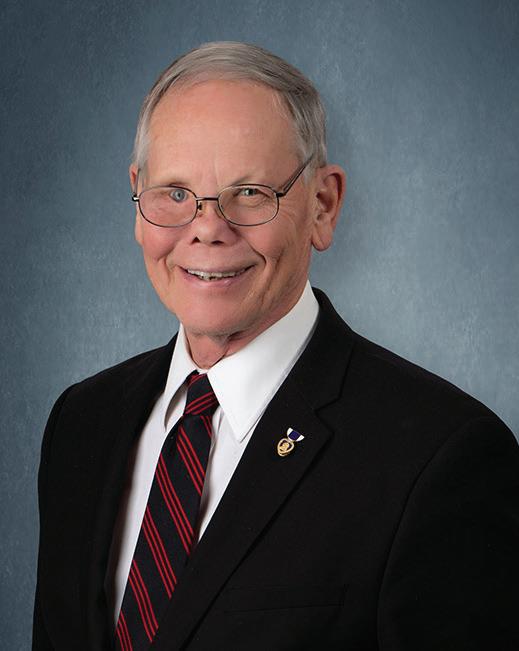
The 116 th League Annual Conference will be held Sept. 24-26 at the Cornhusker Marriott in Lincoln. The Preconference Seminar on “Transformational Zoning and Initiatives Focused on Housing and Economic Mobility” will provide delegates an opportunity to learn how municipalities across the state are using a multi-faceted approach to provide more housing and/or help small businesses grow to increase economic mobility. How to provide needed housing coupled with economic mobility is one of the most significant challenges facing municipal officials and business leaders across the state.
I am especially pleased to announce that Brad Black, President and CEO of HumanEx Ventures, will present our keynote address on “Talent, Culture, & Teams: The ExFactors of Excellence.” Brad Black is a nationally recognized speaker and author of an exceptional book by the same title. I was privileged to attend the HumanEx Community and Leadership Summit in Omaha on June 25-26 with several other mayors invited by Papillion Mayor David Black. I am looking forward to hearing his thought-provoking, positive and inspirational message!
Don’t miss the 116th League Annual Conference featuring important topics, outstanding speakers, and numerous opportunities for networking!
BY PRESIDENT MARLIN SEEMAN, MAYOR OF AURORA
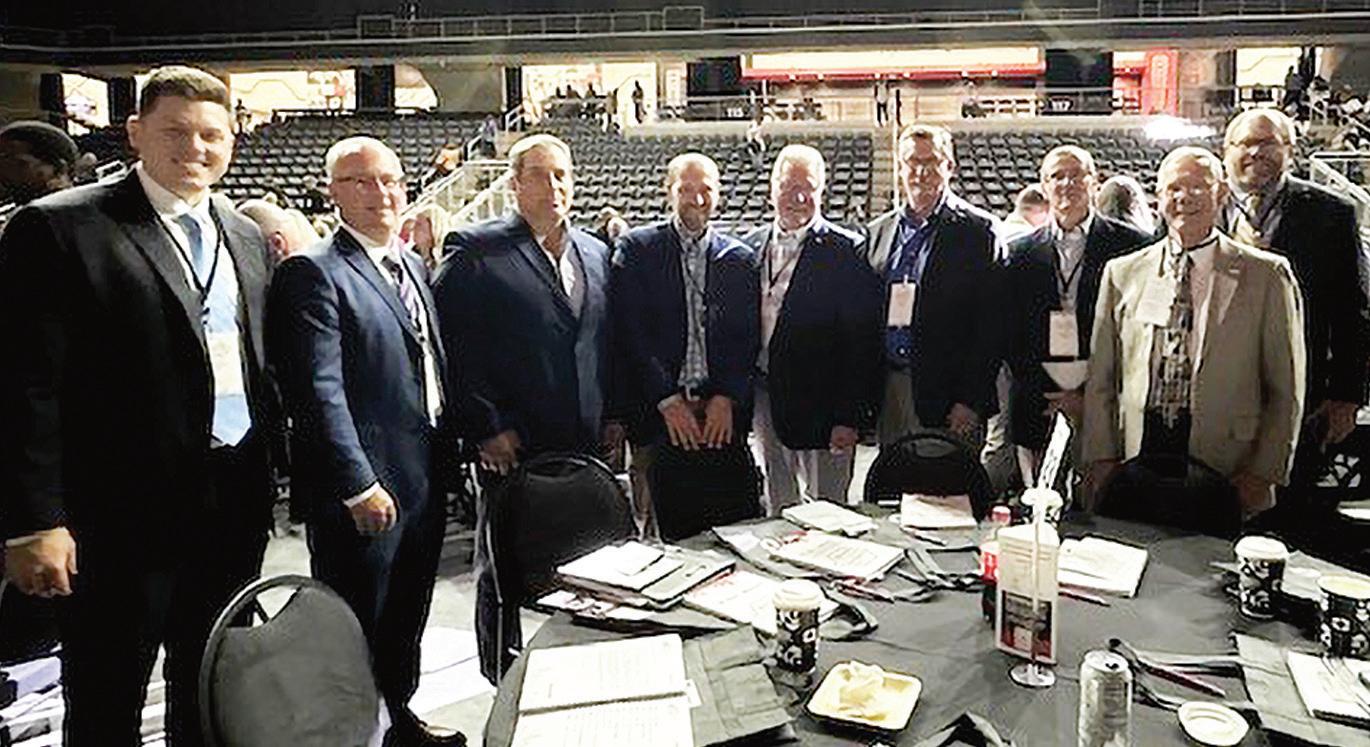
Papillion Mayor David Black hosted a Mayor’s Table at the HumanEx Summit held in Omaha at the Baxter Arena on June 26 and 27. The following Mayors participated in the leadership summit (from left): Fremont Mayor Joey Spellerberg, North Platte Mayor Brandon Kelliher, Hastings Mayor Jay Beckby, Kearney Mayor Jonathon Nikkila, Columbus Mayor Jim Bulkley, Papillion Mayor David Black, Nebraska City Mayor Bryan Bequette, Aurora Mayor Marlin Seeman, and Seward Mayor Josh Eickmeier.
The wide variety of topics offered during concurrent sessions will update delegates on the latest laws and issues of municipal concern, including: nuisance abatement; asset management/budgeting; effective security measures; tax increment financing; employee benefit trends; resources for pond management and grants available from Nebraska Game and Parks; and an interesting review of legislative terms and phrases to provide a better understanding of the legislative process. Another concurrent session will highlight the law, process, and steps to follow to limit municipal liability in the event your city or village is facing a lawsuit. One of the most important concurrent sessions will focus on “lessons learned” for FY 25-26 and FY 2627 when transitioning from the “lid on restricted funds” to the “Property Tax Growth Limitation Act” as amended by LB 647 in the 2025 session.
Continued on page 5 / See Annual
Continued from page 5
Plan to tour and have lunch at our new League Building immediately after the last concurrent session on Friday, Sept. 26! Join the celebration of this milestone in the history of the League! Following years of planning, this wonderful building will better serve the needs of member municipalities of the League, Utilities Section, League Association of Risk Management (LARM), and League Insurance Government Health Team (LIGHT) for decades to come. Your municipality will be getting an invitation for the building dedication and Ribbon Cutting Ceremony on Sept. 5. All municipal officials are invited to join in the festivities; an RSVP will be required so we can have enough sandwiches, soft drinks, and desserts for those in attendance. I look forward to seeing everyone on Sept. 5 as well as at the League Annual Conference Sept. 24-26!
Plan to tour and have lunch at our new League Building immediately after the last concurrent session on Friday, Sept. 26! Join the celebration of this milestone in the history of the League!
”
-
TO: Members of the League of Nebraska Municipalities
FROM: L. Lynn Rex, Executive Director
DATE: July 2025
RE: Annual Business Meeting
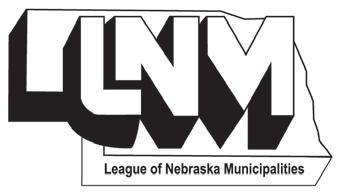
The Annual Business Meeting of the League of Nebraska Municipalities will be held Sept. 25 at 10:30 a.m. at the Cornhusker Marriott Hotel. Agendas will be available at the conference registration desk.
Applications are now being accepted for mini-grants of up to $500, offered by the Nebraska Library Commission, as a part of our initiative to get childhood literacy back on track. We’ve partnered with the Little Free Library organization to offer these grants, with a focus on improving access to books in unserved (communities with no library) and underserved (communities that have a library, but would benefit from additional access points, or increased hours of availability) areas. Applications can be submitted anytime between now and
are set to close at midnight on August 22, 2025. If the applicant already has an existing little free library, grants of up to $250 are available for the purchase of early literacy books to stock the LFL location. For those communities seeking to install a Little Free Library, grants of up to $500 are available for the library box, post, and children’s books.


Any community within Nebraska is eligible to apply. Local governments or local civic institutions (e.g. Lions clubs, scout organizations, Rotary, Kiwanis, and others) are all welcome
to apply. You MUST have permission to install the LFL box and post, either from the public entity (e.g. city/ town) or private entity (if installing on private property).
Source – The Nebraska Library Commission
Crowell has served the City of Ravenna for 24 years; adds this recognition to a long list of leadership achievements
Congratulations to Kellie Crowell, CMC, City Clerk of Ravenna, who was recently elected to serve on the 28-member Board of Directors of the International Institute of Municipal Clerks (IIMC).
IIMC is a nonprofit organization comprised of more than 15,000 members worldwide. Crowell’s oath of office took place during the Institute's 79th Annual Conference in St. Louis, on May 21, 2025. Crowell’s Region represents Colorado, Montana, Nebraska, North Dakota, South Dakota, and Wyoming. She will serve a three-year term culminating in May 2028.
Crowell brings 24 years of experience in municipal government to the Board amd currently serves as the Clerk/Treasurer in Ravenna. Crowell was hired as the Deputy City Clerk of Ravenna in 2000 and promoted to City Clerk/Treasurer in 2007. She received her Certified Municipal Clerk (CMC) designation in 2008 and is currently working toward her Master Municipal Clerk (MMC) designation.
Continued on page 14 / See IIMC
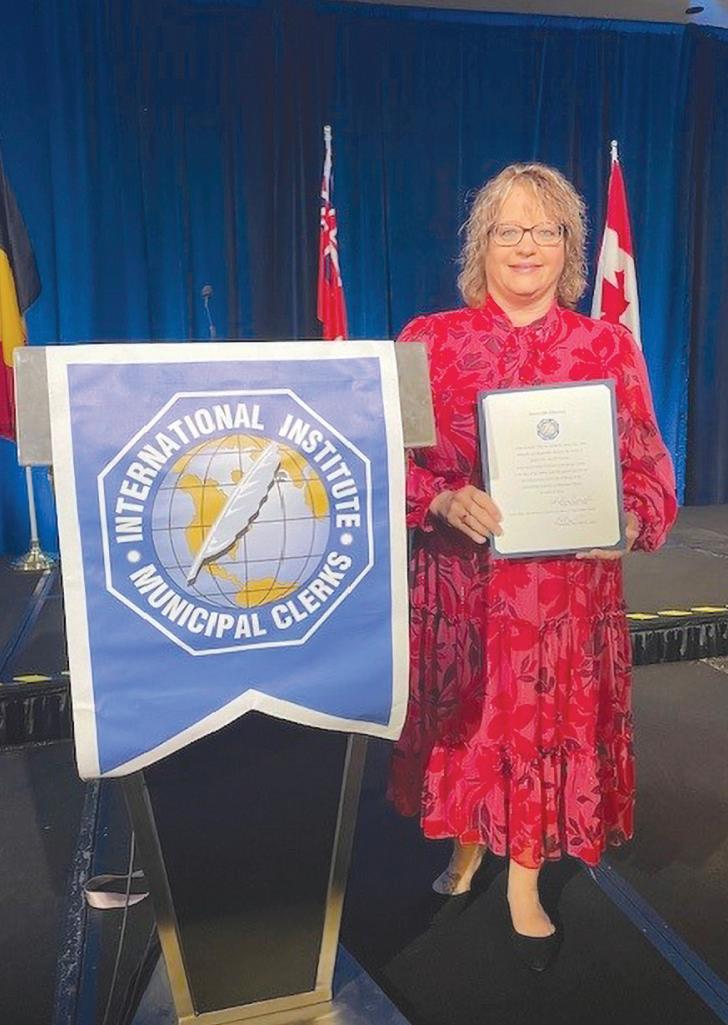


BY CHRISTY ABRAHAM, LEGAL COUNSEL, LNM
The Nebraska Legislature adjourned sine die June 2, 2025. The 2026 session is scheduled to begin January 7, 2026. During the 2025 session, 715 bills were introduced. An additional 41 “A” bills (appropriations bills) were introduced. Two hundred and two bills were approved by the Governor in 2025. The Governor vetoed two bills, and the Legislature was not able to override either of them. Many of the bills passed by the Legislature included the provisions of other bills so the total number of bills actually passed was over 320. There was one constitutional amendment regarding legislative term limits that passed and will be placed on the General Election ballot in 2026. This article lists some of the bills enacted by the Legislature that may be of interest to municipal officials.
Hundreds of bills were introduced in the 2025 legislative session that the League of Nebraska Municipalities supported, opposed, or monitored according to prior directives or policies of the League Executive Board. The bills that the League Executive Board directed to be introduced on behalf of the League and the bills that the Board voted to support are marked with a [League]. The Executive Board met before the 2025 legislative session to review recommendations of the League Larger and Smaller Cities Legislative Committees and met during the legislative session.
Legislation enacted in 2025 becomes effective three calendar months after the end of the legislative session unless the bill had an emergency clause or a different operative date. Unless otherwise noted, bills enacted in the 2025 legislative session take effect September 3, 2025.
Copies of the bills can be found on the Legislature’s website at http://nebraskalegislature.gov/.
Continued on page 8
LB 36
Introduced by Sen. Brandt
LB 36 contains several bills of interest to municipalities including LB 309, LB 590 and LB 344. LB 309 (Hughes) adopts the Safe Battery Collection and Recycling Act which requires that beginning January 1, 2028, no producer or retailer may sell certain batteries unless the producer is identified as a member of a battery stewardship organization operated under a battery stewardship plan approved by the Department Water, Energy, and Environment. LB 590 (Moser) gives the Nebraska Department of Transportation the authority to operate a mitigation bank or in-lieu fee program to meet its mitigation obligations for endangered species and other environmental impacts under state and federal law. LB 344 (Brandt) changes how municipal water use can be regulated in a Natural Resources District Integrated Management Plan (IMP) in a fully or over appropriated basin. LB 344 exempts most municipal water use from potential regulation in an IMP except that beginning in 2026, any new or expanded customer with an annual use of more than 25 million gallons may be subject to regulation.
Introduced by Sen. DeKay
Introduced by Sen. Clouse
Introduced by Sen. DeKay
LB 43 restricts electric suppliers from using electronic components that are manufactured by foreign adversaries within 10 miles of any siloed missiles. Impacted utilities are required to work with their vendors and to certify to the Power Review Board that they are complying before installation can occur. Effective Date: February 25, 2025.
LB 90 harmonizes provisions dealing with improvement districts in cities of the first class, including: clarifying the types of improvements permitted for cities of the first class and harmonizing those with permitted improvements for cities of the second class; giving cities of the first class the option to fund improvements in districts at public cost or by levy of special assessments; and limiting the instances when property owners may dictate the types of materials to be used in the public bidding process to when a district is formed by petition. [League]
LB 91 removes language in state law which allowed a municipality to take ownership “at no cost” of the electric distribution system from a public power district if the public power district has paid off their indebtedness. LB 91 allows a municipality to take ownership of the system but removes the “no cost” language.
LB 108
Introduced by Sen. Jacobson
LB 113
Introduced by Sen. Quick
Introduced by Sen. Sanders
Introduced by Sen. Clouse
LB 108 changes contributions provisions under the Cities of the First Class Firefighters Retirement Act. Beginning March 1, 2025, firefighters employed by a city covered by an absolute coverage group with a population of more than 60,000 inhabitants that is in a county with a population of more than 100,000 inhabitants, must contribute 6.5% to their retirement. Effective Date: February 25, 2025.
LB 113 contains the provisions of the entertainment district bill, LB 186 (Dover). [League] Under the bill, the definition of commons area within entertainment districts is changed to provide greater flexibility regarding vehicular traffic and additional safety measures. These provisions apply to all classes of municipalities.
LB 123 provides that upon the failure of a municipality to file a copy of its annual audit with the Auditor of Public Accounts within 12 months after the time of the order and notice of delinquency given by the Auditor, the municipality will no longer be entitled to the distribution of incentive payments for street purposes under §39-2511. Municipalities regain their eligibility for these funds after coming into compliance.
LB 167 extends the sunset date of the Nebraska Litter Reduction and Recycling Act to September 30, 2030. Effective Date: February 25, 2025.
LB 179
Introduced by Sen. Clouse
Introduced by Sen. Storm
LB 240
Introduced by Sen. Jacobson
LB 247
Introduced by Sen. DeKay
LB 179 amends the Police Officers Retirement Act to change contribution rates for both the city and police officers in cities of the first class. Beginning October 1, 2025, cities of the first class and police officers employed by a city of the first class will contribute a sum equal to 9% of the officer’s salary to the retirement system. The bill also permits firefighters for a city of the first class, upon retirement, to receive a payment of their retirement value in the form of a single lump-sum payment or one or more partial payments in an amount and frequency elected by the firefighter. [League] Operative date for firefighter retirement provisions: October 1, 2025.
LB 196 allows all-terrain vehicles (ATVs) and utility-type vehicles (UTVs) to operate between the hours of sunset and sunrise for the purpose of snow removal within the corporate limits of a city or village or within an unincorporated village. [League]
LB 240 amends the Community Development Law to change a requirement for notices for the division of ad valorem taxes in redevelopment projects utilizing tax increment financing. The bill changes the deadline for required notices from August 1 to on or before July 1 of the year of the provision’s effective date. [League] Effective Date: March 11, 2025.
LB 247 increases landfill disposal fees from $1.25 to $2.34 per specified cubic yard or ton and allows some of the funds to be used for remediation of superfund sites. The increase in fees will increase the amount available to municipalities from the Waste Reduction and Recycling Incentive Fund. Effective Date: March 17, 2025.
LB 266
Introduced by Sen. Dover
Introduced by the Urban Affairs Committee
LB 266 prohibits municipalities, with limited exceptions, from enacting or enforcing any ordinance that imposes rent controls on private property.
LB 288 amends the Middle Income Workforce Housing Investment Act to allow rent-to-own housing to be eligible for grants under the program. It also expands the definition of workforce housing to include housing that costs no more than $350,000 to construct. It also includes the provisions of the following bills: LB 450 (Fredrickson) amends the Property Assessed Clean Energy Act (PACE) to expand the definition of the energy project to include grid resiliency improvements; LB 626 (Dover) changes the Community Development Law to expand the use of tax increment financing for affordable housing; LB 622 (Dover) provides additional requirements when the Department of Economic Development disburses grant funds for housing development costs under the Affordable Housing Trust Fund; and LB 531 (Kauth) provides that the Department of Economic Development is not required on any new construction project or rental conversion project which receives funding from the Affordable Housing Trust Fund to meet the requirements related to complying with the International Energy Conservation Code and obtaining approval of building plans and specifications by the Department of Water, Energy, and Environment. Operative Date for certain provisions of LB 622: October 1, 2025.
Introduced by the Urban Affairs Committee
LB 289 allows cities of the first and second class to constitute the board of adjustment. Previously, only villages had the option of allowing their village board to serve as their board of adjustment. The bill also allows villages to choose whether to have three or five board members with a vote of the people and outlines the process for a village to change the number of village board members. Finally, the bill expands the definition of retail under the Local Option Municipal Economic Development Act (LB 840 statutes). [League]
Introduced by Sen. DeBoer
LB 311 clarifies that federal law preempting local government regulations over broadband are applicable in Nebraska. Local governments are prohibited from setting conditions for internet services including rates, services, or service contract terms. It also allows broadband funding to be directed to new competitive providers in certain service areas, requires broadband and communications infrastructure to be subject to One-Call requirements, and allows local exchange carriers to request deregulation of some of their exchanges. Effective Date for certain provisions: May 20, 2025.
Introduced by Sen. Fredrickson
LB 521
Introduced by Sen. Sanders
Introduced by Sen. Jacobson
LB 380 contains the provisions of LB 610 (Bostar) [League] that implements a ground emergency medical transport (GEMT) program to improve Medicaid reimbursement for public ambulance providers based on the actual costs of providing the transport services. The Department of Health and Human Services may seek the necessary federal approvals for the implementation of GEMT.
LB 521 is an omnibus election bill that includes provisions to allow changes to the elections of city officials in Omaha and Lincoln. The bill also amends the Open Meetings Act to clarify notice provisions when a newspaper refuses, neglects, or is unable to publish a notice and reinstates language unintentionally omitted last year regarding notice provisions and agenda items. Effective Date: May 30, 2025.
LB 526 clarifies the authority of a public power supplier to impose requirements on any cryptocurrency mining operation for the cost of infrastructure upgrades necessitated by such operations. The bill also adds some requirements on a public power supplier to conduct a load study to determine the costs, impacts, and upgrades necessitated before serving a cryptocurrency mining customer, in addition to requirements that the public power supplier publish on its website the number of cryptocurrency mining operations under the supplier’s jurisdiction and the annual energy usage of each operation. Operative Date: October 1, 2025.
Introduced by Sen. Andersen
LB 613 requires the Tax Commissioner to provide to any municipality with local option sales tax, up to three times annually, information requested by the municipality in addition to the list of names and addresses of retailers collecting the local option sales tax for the municipality. The Tax Commissioner must send the information by secured electronic transmission upon request. The bill also allows the individual certified by the municipality to review local option sales tax information to disclose the copies of the returns and return information to another municipal employee to verify the accuracy of certain information. Finally, the bill allows a municipality to request from the Department of Revenue a list of the qualifying businesses which have filed an application to receive certain state tax incentives. The request may be made annually and must be submitted to the Department of Revenue on or before June 30 of each year.” [League]
Introduced by the Revenue Committee
LB 647 contains the provisions of LB 242 (Riepe) [League] amending the Property Tax Growth Limitation Act and the School District Property Tax Relief Act. The changes include: harmonizing the definition of allowable growth and real growth value; clarifying the formula for determining a municipality’s growth percentage; changing provisions for when a special session to override property tax cap is allowed; providing transition language for unused property tax request authority; eliminating certain restrictions on occupation taxes; requiring information on property taxes spent on public safety services be added to property tax statement; and changing how tax increment financing (TIF) is determined under the property tax cap. Effective Date: June 4, 2025.
Introduced by Sen. von Gillern
Introduced by Sen. von Gillern
LB 650 contains the provisions of two bills of interest to municipalities. LB 458 (Bostar) creates a process for land banks holding tax sale certificates to seek a tax deed or pursue foreclosure of vacant and abandoned real estate after two years. Previous law provides for tax sale certificate holders to seek a tax deed or pursue foreclosure after three years, regardless of whether the real estate is vacant or abandoned. LB 270 (Rountree) [League] allows an individual designated by a municipality to review sales and use tax information to notify the Auditor of Public Accounts of any suspected sales and use tax reporting irregularities and discrepancies. Also included in LB 650 are the elimination of certain tax credits. Effective Date for LB 458 provisions: May 6, 2025. Effective Date for LB 270 provisions: September 3, 2025.
LB 707 makes several changes to the Good Life Transformational Projects Act and the Good Life District Economic Development Act including: additional reporting requirements to municipalities that have good life districts; allowing municipalities to request a reduction in the boundaries of a good life district and outlining the procedures for that reduction; providing that political subdivisions who are good life district applicants are not exempt from sales tax for certain purchases; allowing project areas to be established within certain good life districts; adding reasons for the termination of a district; prohibiting the use of eminent domain for the purpose of giving or selling property to a private entity; authorizing a municipality to establish a business occupation tax in the good life district; and changing provisions relating to sales tax collected and used within a good life district. Effective Date: June 4, 2025.
Before the Legislature reconvenes in January 2026, the League will be working on various interim studies that have been introduced and referred to legislative standing committees. The interim study topics include tax increment financing, land banks, public notice requirements, state tax incentive programs, Firefighter Cancer Benefits Act, and
The League is grateful to municipal officials, elected and appointed, who continued their impactful advocacy efforts during the 2025 session. It is working in partnership with our municipal officials that legislative victories are won.
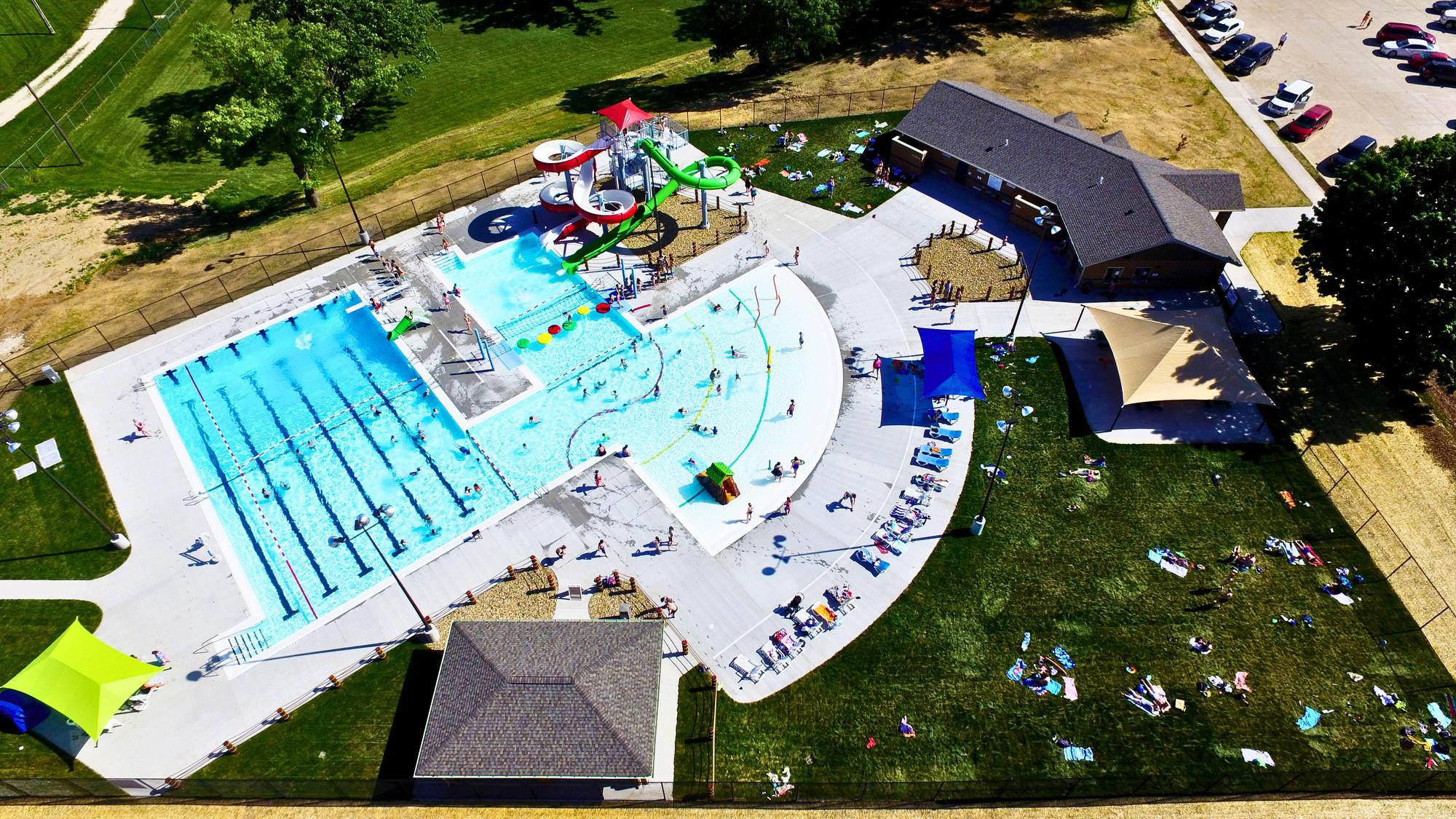
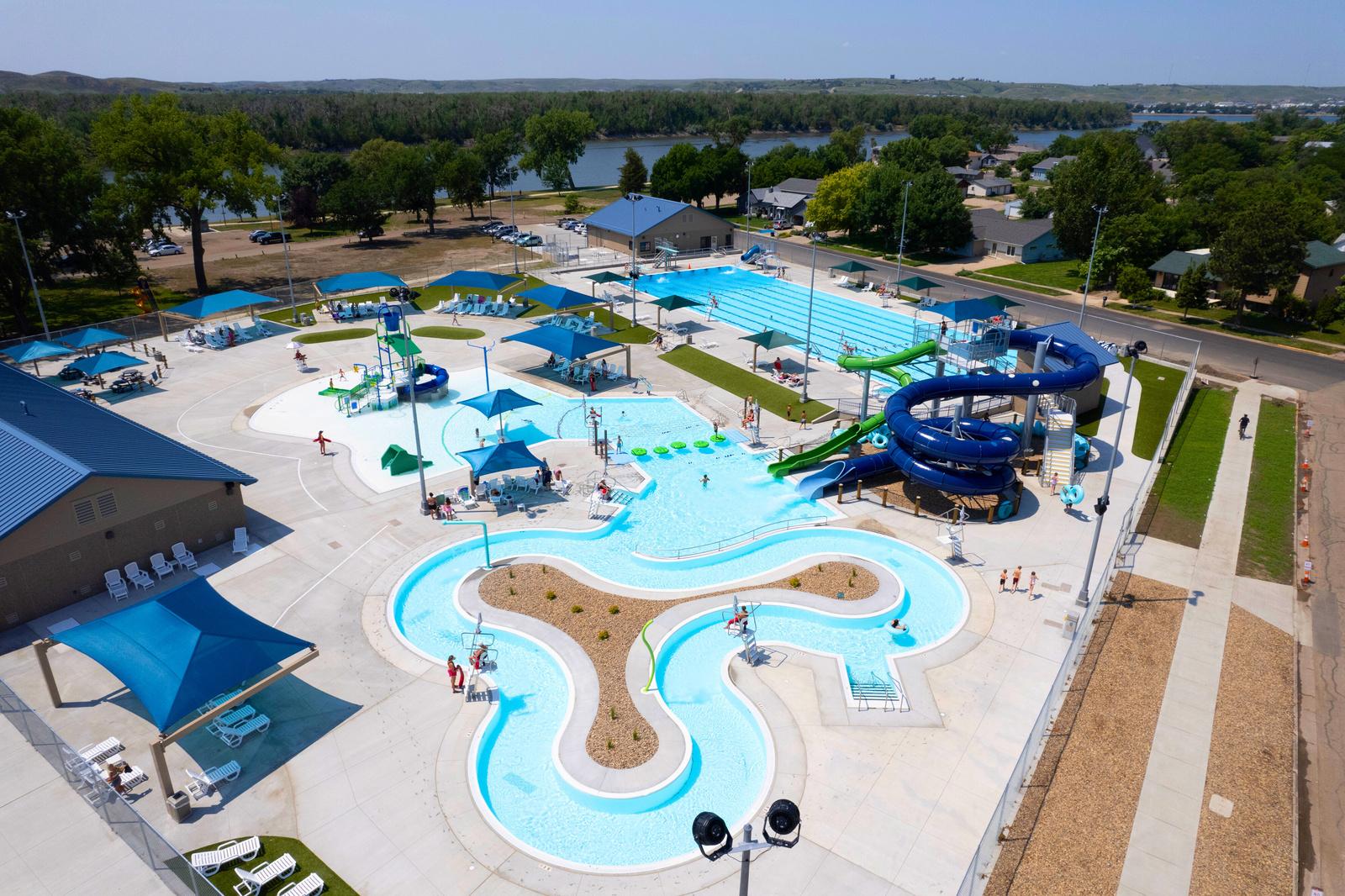


In May 2025, the City of Columbus proudly launched its official podcast, “Louped In” — a new platform designed to keep residents informed, inspired, and connected to their community.
The name “Louped In” is a nod to the historic Loup River, which flows through the Columbus area, and reflects the podcast’s mission to connect people to the heart of local life.
Hosted by Parks and Recreation Director Betsy Eckhardt and Public Communications Manager Matt Lindberg, “Louped In” offers a behind-the-scenes look at local government, community events, and the people shaping Columbus — all through candid conversations and thoughtful storytelling.
Eckhardt and Lindberg had spent more than a year discussing new ways to engage with the community and felt a podcast was the perfect platform to make local government more approachable and relevant.
“Columbus is full of passionate people doing great work, often behind the scenes,” Lindberg said. ““Louped In’ is our way of celebrating them — giving our residents a voice and a deeper understanding of the community they call home.”
Each episode features interviews with city leaders, elected officials, staff members, and community advocates who are helping make Columbus a better place to live, work, and play. The podcast aims to break down barriers between local government and the public, making information more accessible, engaging, and personal.
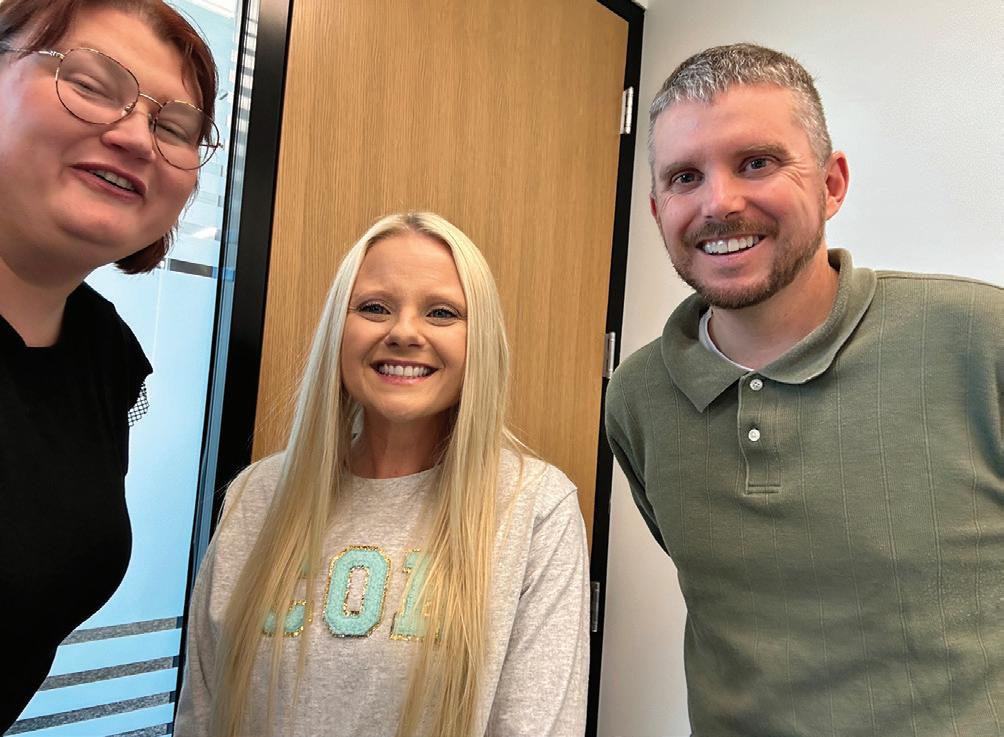
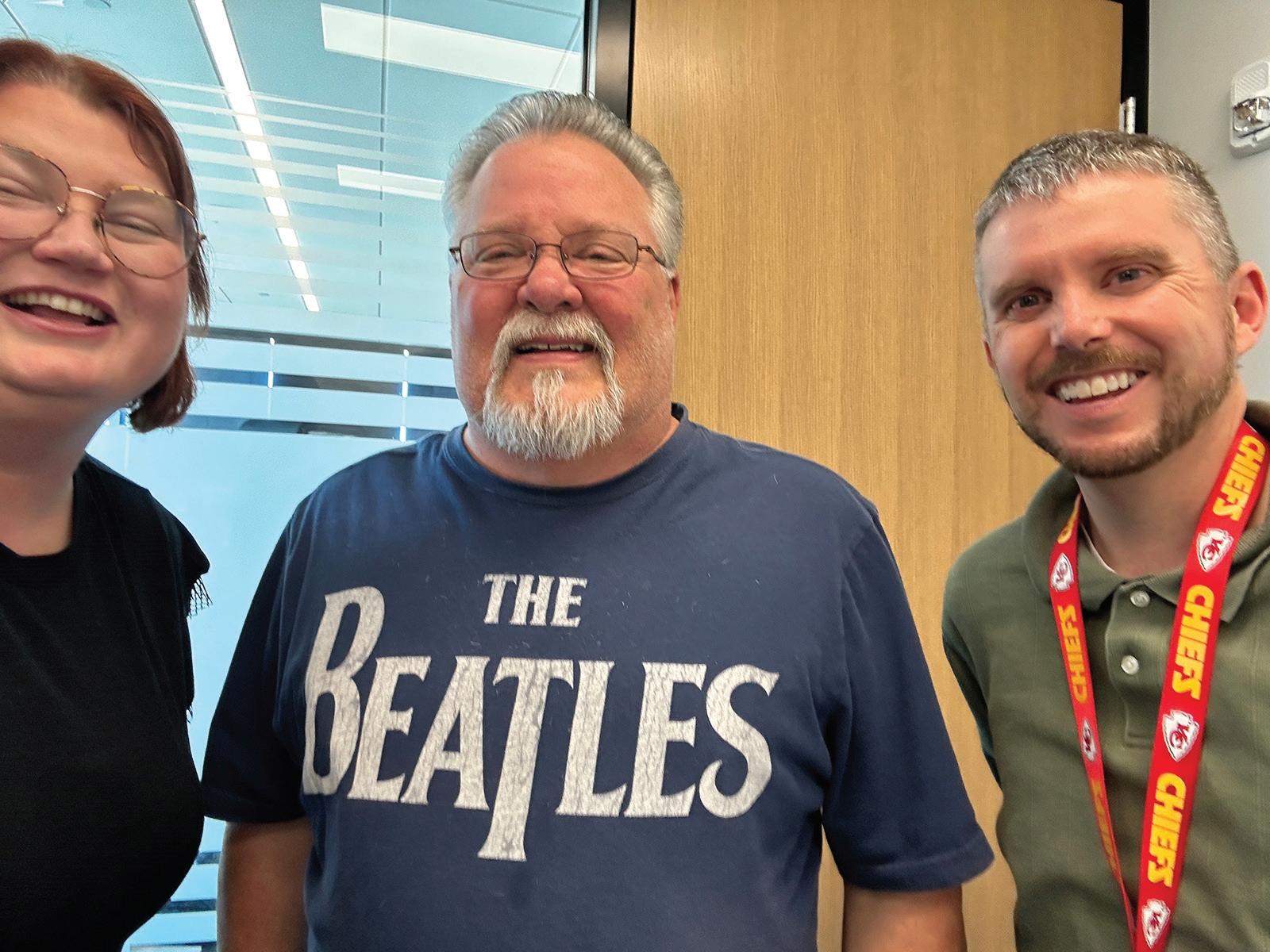


The League Insurance Government Health Team (LIGHT) helps hundreds of its members throughout Nebraska obtain affordable health insurance coverage.
With seven plan options and three networks to choose from, you’re sure to find one that meets your group’s coverage and benefit needs.
Offering your employees much-needed protection against the high cost of medical care:
• Three PPO options
• Four HSA-eligible high deductible options
• Prescription drug coverage
Single: Covers the employee only
Employee and spouse: Covers the employee and their spouse
Employee and children: Covers the employee and their eligible dependent children, but does not provide coverage for the spouse
Family: Covers the employee and eligible dependents including a spouse
RECEIVE
With several networks available, you have easy access to quality providers:
• NEtwork BLUE (Statewide)
• Premier Select BlueChoice (Regional)
• Blueprint Health (Regional)
• Out-of-state network availability
Contact your current local Agent/Broker Or contact
Dennis Maggart
Executive Vice President P: 913-378-9841 or 816-718-0335
Dennis@McInnesGroup.com
Jane Limbach
Account Man ager P: 913-378-9840
Jane@McInnesGroup.com
Continued from page 12
“We want people to feel informed and connected,” Eckhardt said.
“Whether it’s a major city project or a community event, we’re giving listeners a front-row seat to the conversations that matter most.”
So far, guests have included City Administrator Tara Vasicek, Youth Librarian Kelli Keyes, Project Engineer Braden Labenz, Mayor Jim Bulkley, City Council Member Charlie Bahr, as well as local entrepreneurs and health care professionals.
With a blend of lighthearted banter and meaningful dialogue, “Louped In” offers a unique perspective on what drives progress and pride in Columbus.
New episodes are released weekly on Wednesdays and are available on major streaming platforms, including Apple Podcasts and Spotify. All available episodes are now streaming.
The reception to the podcast has been overwhelmingly positive, according to Lindberg and Eckhardt.
“Louped In is meant to keep people informed, inspired, and
Continued from page 6
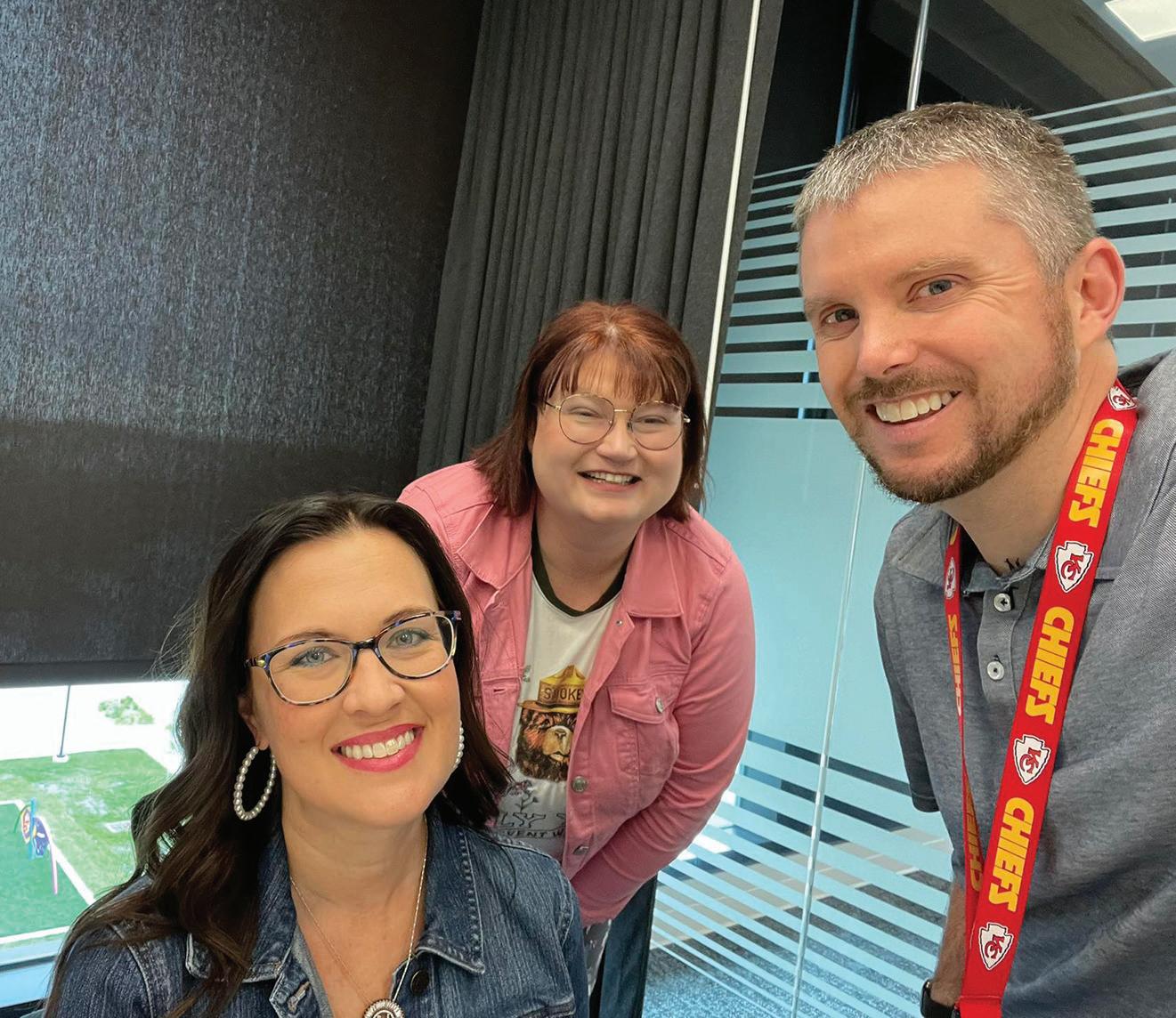
connected,” Lindberg said. “Each episode dives into conversations with local leaders, changemakers, and everyday residents — the people who make Columbus a vibrant place to call home.”
To listen and subscribe, search “Louped In” on Apple Podcasts or Spotify. Stay tuned — and get “Louped In” to all things Columbus.
During her tenure with the City of Ravenna, Crowell has served on the Heartland Clerks Association Board and the Nebraska Municipal Clerks Association Executive Board. She currently is the President of the Heartland Clerks Association and Past President of the Nebraska Municipal Clerks Association (NMCA).
Crowell has also served as chairman for numerous committees in both of her state associations. She was the State President when Omaha hosted IIMC’s 70th Annual Conference in 2016, providing the opening welcome
to more than 1,000 attendees. Crowell has presented at numerous League conferences and the NMCA Institute and Academy. She has developed a vast professional network ranging from the local to the state level. Besides the NMCA and Heartland Clerks Executive Boards, Crowell also serves on the League of Nebraska Municipalities Accounting and Finance Conference Committee and ACE Energy Executive Board of Directors.
Crowell has also been honored by being named NMCA Clerk of the Year in 2011 and again in 2023.
OnJuly 11, the Nebraska Attorney General’s Office announced approximately $720 million nationwide in settlements with eight drug makers that manufactured opioid pills and worsened the nationwide opioid crisis. Based on the overwhelming participation by Attorney Generals across the country, all eight defendants have agreed to proceed with a sign-on period for local governments. Nebraska is eligible to receive more than $3 million as a result of these settlements.
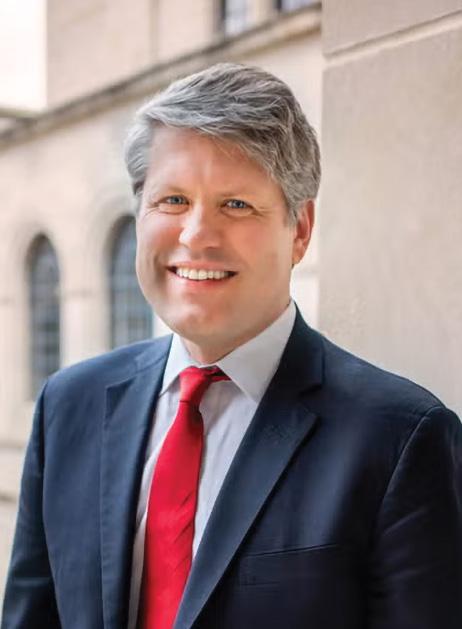
• Mylan (now part of Viatris): $284,447,916 paid over nine years
• Hikma: $95,818,293 paid over one to four years
• Amneal: $71,751,010 paid over 10 years
• Apotex: $63,682,369 paid in a single year
• Indivior: $38,022,450 paid over four years
• Sun: $30,992,087 paid over one to four years
• Alvogen: $18,680,162 paid in a single year
• Zydus: $14,859,220 paid in a single year
In addition to these abatement payments, several of the settlements allow states to receive free pharmaceutical products or cash in lieu of this product. Additionally, seven of the companies (not including Indivior) are prohibited from promoting or marketing opioids and opioid products, making or selling any product that contains more than 40 mg of oxycodone per pill, and are required to put in place a monitoring and reporting system for suspicious orders. Indivior has agreed to not manufacture or sell opioid products for the next 10 years, but it will be able to continue marketing and selling medications to treat opioid use disorder.
The settlements were negotiated by North Carolina, California, Colorado, Illinois, New York, Oregon, Tennessee, Utah, and Virginia.
Source – Office of the Nebraska Attorney General
NMPPEnergy awarded Jeff Kohrs, General Manager of Nebraska City Utilities, with the Bob Arraj Service Award at the NMPP Energy Annual Conference in March.
The award is presented annually to an official or employee who has excelled in service in the utility industry. The award is a memorial tribute to Bob Arraj, former city administrator and utilities superintendent of Kimball. Arraj’s years of knowledge, insight, and expertise in the energy field allowed communities to benefit from numerous energy and service projects.
Kohrs has been a tremendous asset to the Nebraska City community, working at Nebraska City Utilities for 41 years. He served in a variety of roles including data processing supervisor, assistant office manager, and office manager. He’s been in his current role as general manager for Nebraska City Utilities since 2018.
He served for nearly 37 years as a member of the Nebraska City Volunteer Fire Department, including as a captain of the department for 12 years and secretary for 15 years. He currently serves on several boards and committees, including the Nebraska City Rotary Club for several years.
He has announced his retirement from Nebraska City Utilities set for August 2025. This award acknowledges his long-term
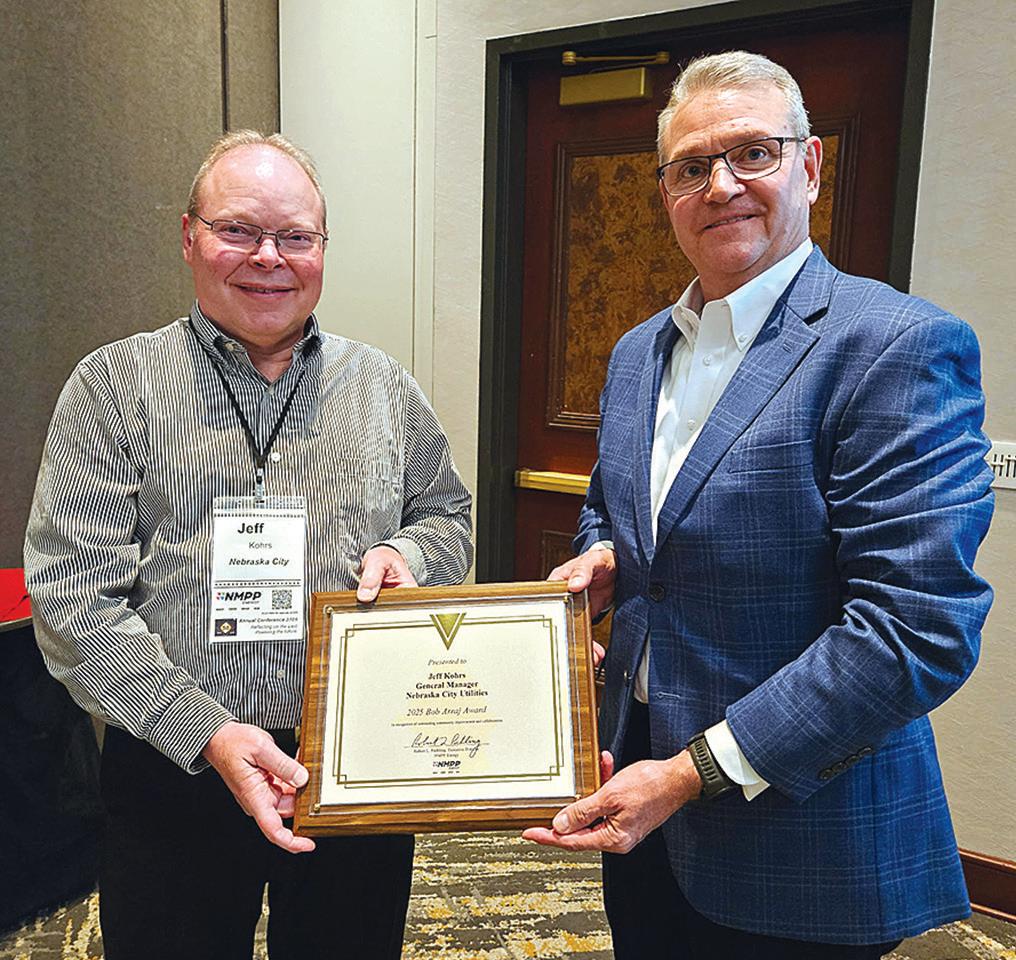
commitment and dedication to Nebraska City Utilities and the Nebraska City community. As the recipient of the award, Kohrs received $350 which will be designated to go to a local project or program of his choosing.
Source – NMPP
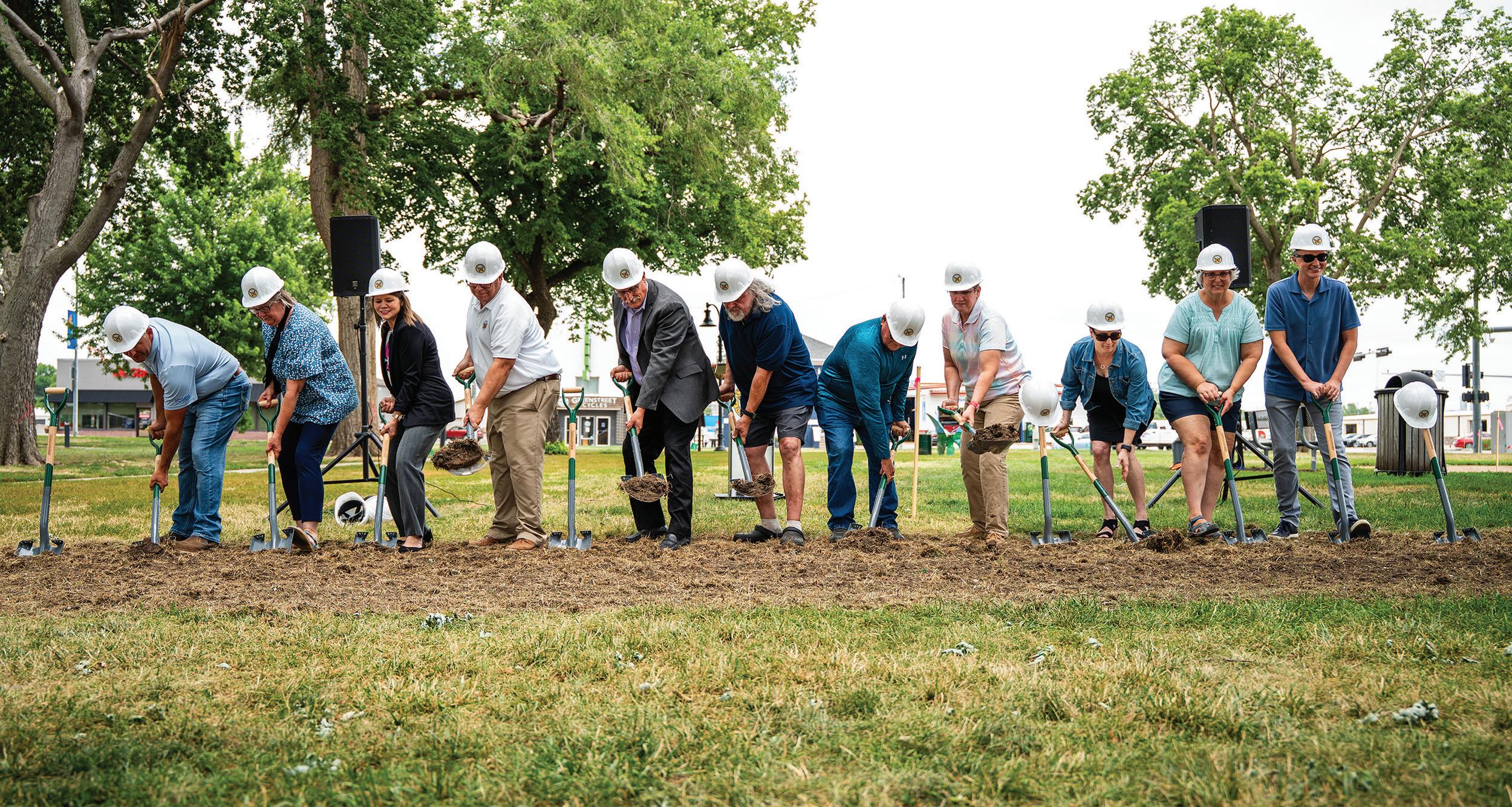
The City of Papillion held a groundbreaking ceremony on June 23 to celebrate the beginning of the Papillion City Park renovation, which will modernize the 150-year-old centrally located park.
Improvements will include:
• Improved paved trail network of 8- to 10-foot-wide trails
• New playground area
• New stage and shelter for picnics and performances
• Seating areas, large swings, and hammocks
• Nature trail
• Improved parking and traffic flow
• A grand entrance to the park at the corner of Washington and Lincoln Streets
Papillion City Park is the location of Papillion Days, the Papillion Farmers Market, and a variety of other community events. The project is expected to be completed by Papillion Days 2026, held Father’s Day weekend.

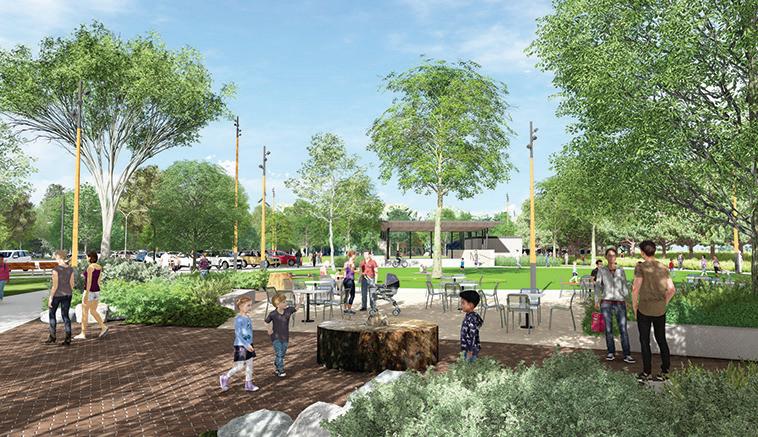
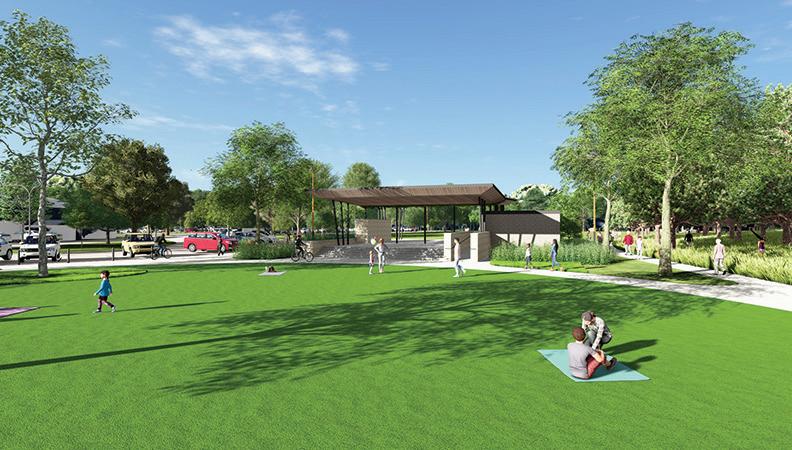
Pawnee City has been in the news lately with a bold, new approach to rural revitalization. The plan, called Vision 2030, includes construction of 25-new, singlefamily homes within the community. The project kicked off in November 2024 with construction starting on the first home.
As part of the initiative, the city is offering $50,000 down-payment assistance to new residents on homes built for the program. Perspective buyers must be able to qualify for the mortgage for the remaining cost and meet certain income requirements.
The homes are designed to entice people to consider Pawnee City when looking for a place to settle down. The homes are designed to be affordable, while in a central location in the community allowing for easy access to all the city has to offer. The new homes are within walking distance from Pawnee City Elementary School, as well as the city pool, and public library. In addition, the new Van Horne Amphitheatre Park hosts concerts, outdoor movies, and other family events and has a new set of pickleball courts.
“We have all the things you need for a small town,” said Steve Glenn, the Chairman of the Economic Development Council for the Pawnee City Chamber of Commerce.
This news from Pawnee City was covered by national news sources such as NPR, Newsweek, the New York Post and more. To learn more about Vision 2030 housing, contact pawneecitydevelopment@gmail. com. More about the program can be fournd at www.pawneecitynewhomes.com


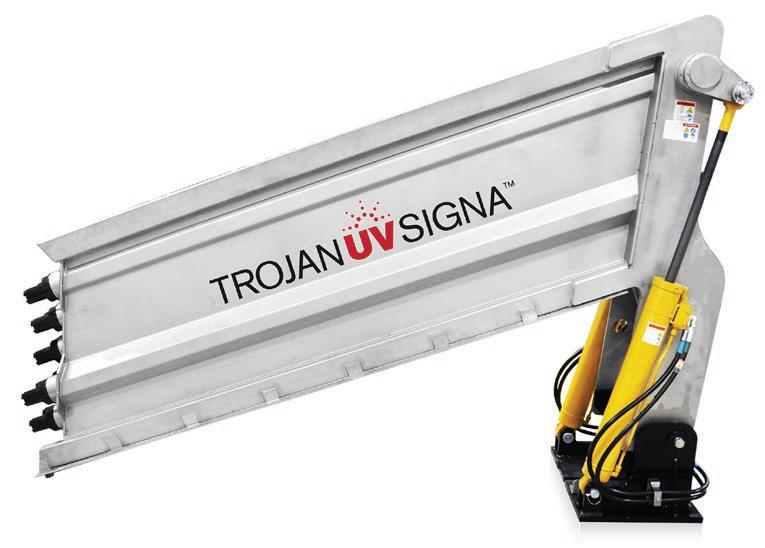

Nebraskans love their community events, whether they are a local art show, a 5K run, an end-of-school carnival, an outdoor music concert, or one of the thousands of activities held in municipal-owned parks or other facilities across the state each year. Most city officials encourage these celebrations that increase economic development and unite citizens, giving them fun activities and maybe a treasured annual event that alumni and relatives will return home for each year. At the same time, supporting these events means protecting the taxpayers who are ultimately liable if something goes wrong. If a hot firework fragment from a fireworks display held in a municpal park falls on a house roof and starts a fire, the owner will likely look for someone to blame, which might well be the municipality.

TRACY JURANEK ASSISTANT EXECUTIVE DIRECTOR, LARM
As a risk management pool for Nebraska governmental agencies, the League Association of Risk Management (LARM) reminds cities and villages to always have proper insurance coverage when an event is held on municpal property.
A city or village needs to make sure any group or organization that uses city property for its event provides a Certificate of Insurance and Hold Harmless Agreement to protect it from potential claims or lawsuits. The group needs to have an insurance policy naming the city or village as an “Additional Insured” under the Certificate of Insurance.
The purpose of this requirement is to make certain that the group has the financial means available to compensate for an injury or property damage should it occur. If a person can receive compensation for injuries or for property damage from the group, they are unlikely to sue the municipality for compensation. If the event’s sponsor cannot compensate them or is not insured, the injured person may look to the municipality for payment.
It’s reasonable for the community groups that host events on municipal-owned property to submit the necessary documents to the city or village office at least 30 days before the event so the Certificate of Insurance and Hold Harmless Agreement can be reviewed at a village board or city council meeting.

Having the group submit these documents to the city or village office in ample time allows the officials to address other aspects of the event such as alcohol permits, parking, any necessary street closures, and other considerations. As far as the municipality is concerned, steps should be taken to ensure that the facilities used for the event are safe. The use of safety barricades and cones is likely needed to control traffic and designate parking and event areas. Have a pre-event discussion with those who are holding an event on municipal property so that they are aware of their responsibilities, such as when the event starts and ends, noise issues, any extra security that might be needed, toilet facilities available, and a back-up plan in case of inclement weather.
While elected officials know that events held in their community are one of the reasons that people love living in Nebraska, they also must recognize the responsibility they have to protect the municipality’s assets when faced with the possibility of a liability suit.
Caward is one of only 300 people currently credentialled with this professional designation
Grand Island Fire Department Division Chief Matthew Caward is officially one of only 300 Chief Training Officers worldwide.
Caward successfully completed the process that awards the professional designation of “Chief Training Officer” (CTO). The Commission on Professional Credentialing® (CPC®) met on April 4 to confer the designation.
The program is designed to recognize individuals who demonstrate their excellence in seven measured components including experience, education, professional development, professional contributions, association membership, community involvement and technical competence. In addition, all applicants are required to identify a future professional development plan.
This professional designation is valid for three years, and to maintain the designation, recipients must show continued growth in the areas of professional development, professional contributions, active association membership and community involvement as well as adhere to a strict code of professional conduct.
Source – City of Grand Island
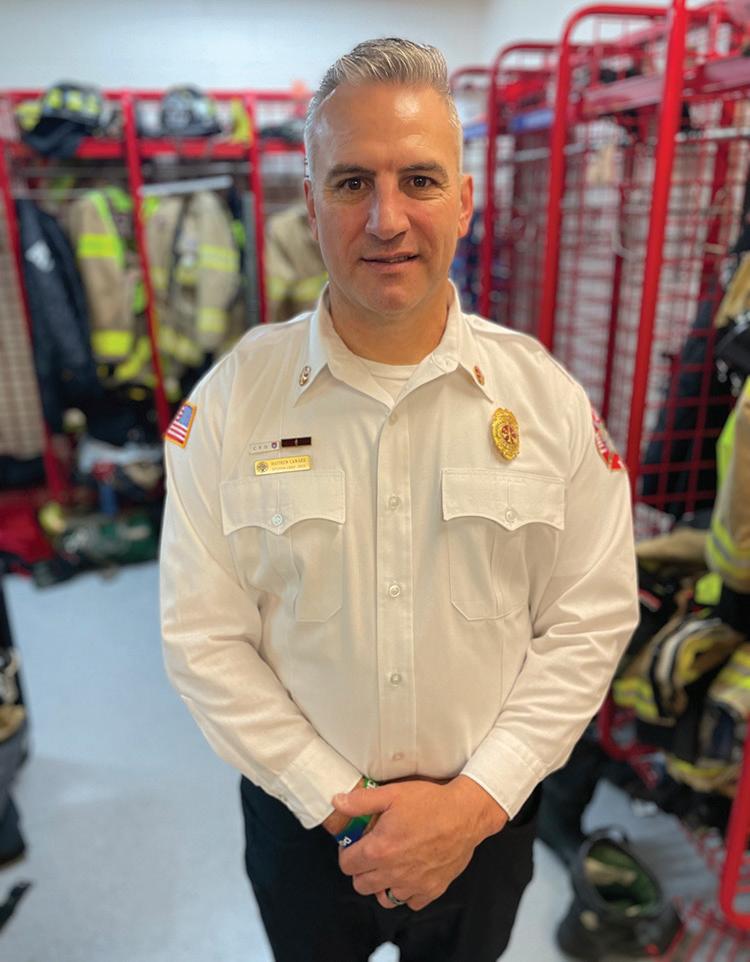
The Cybersecurity and Infrastructure Security Agency (CISA), Region 7, (Iowa, Kansas, Missouri, and Nebraska) invites you to join a two-hour security webinar to enhance your organization’s resilience to an insider threat.
The Insider Threat Mitigation Workshop offered by CISA provides public and private sector stakeholders with information regarding potential threats posed by insiders. The workshop also provides insights on consequences resulting from a successful attack or unintended action and suggests cost-effective measures to mitigate risk. This training is based on the principles captured in the CISA Insider Threat Mitigation Guide and consists of two parts.
• Part 1: High-Level overview of insider threat concepts.
• Part 2: Begin building or improving organization’s insider threat mitigation program.
Note: The link to connect to the webinar will be available after you register.
Source – CISA


As communities in Nebraska take inventory of their existing water and wastewater systems, they often face the concerns of aging infrastructure and the effects that has on their residents’ access to safe drinking water or sanitary wastewater systems. Communities also need to identify parts of the system that need to be repaired or replaced, evaluate whether the current systems meet the current needs for both quality and quantity, as well as eliminate any health-related risks with both their water and wastewater systems. USDA Rural Development has several different programs to help a community with many different projects a community may have on its list, including a program that can solve those water and wastewater concerns.
Water & Waste Disposal Loan & Grant Program:
What does this program do?
Provides funding for clean and reliable drinking water systems, sanitary sewage disposal, sanitary solid waste disposal, and storm water drainage in rural areas.
Most state and local governmental entities, private nonprofits, and federally recognized Tribes in rural areas and towns with populations of 10,000 or less, or Tribal lands in rural areas. Who is eligible?
What kind of funding is available?
Long-term (up to 40 years), low-interest loans. If funds are available, grants may be combined with a loan if necessary to keep user costs reasonable. Loan term based on useful life of facilities financed and has a fixed interest rate for the life of the loan. Interest rate based on need for the project and the median household income of the area to be served.
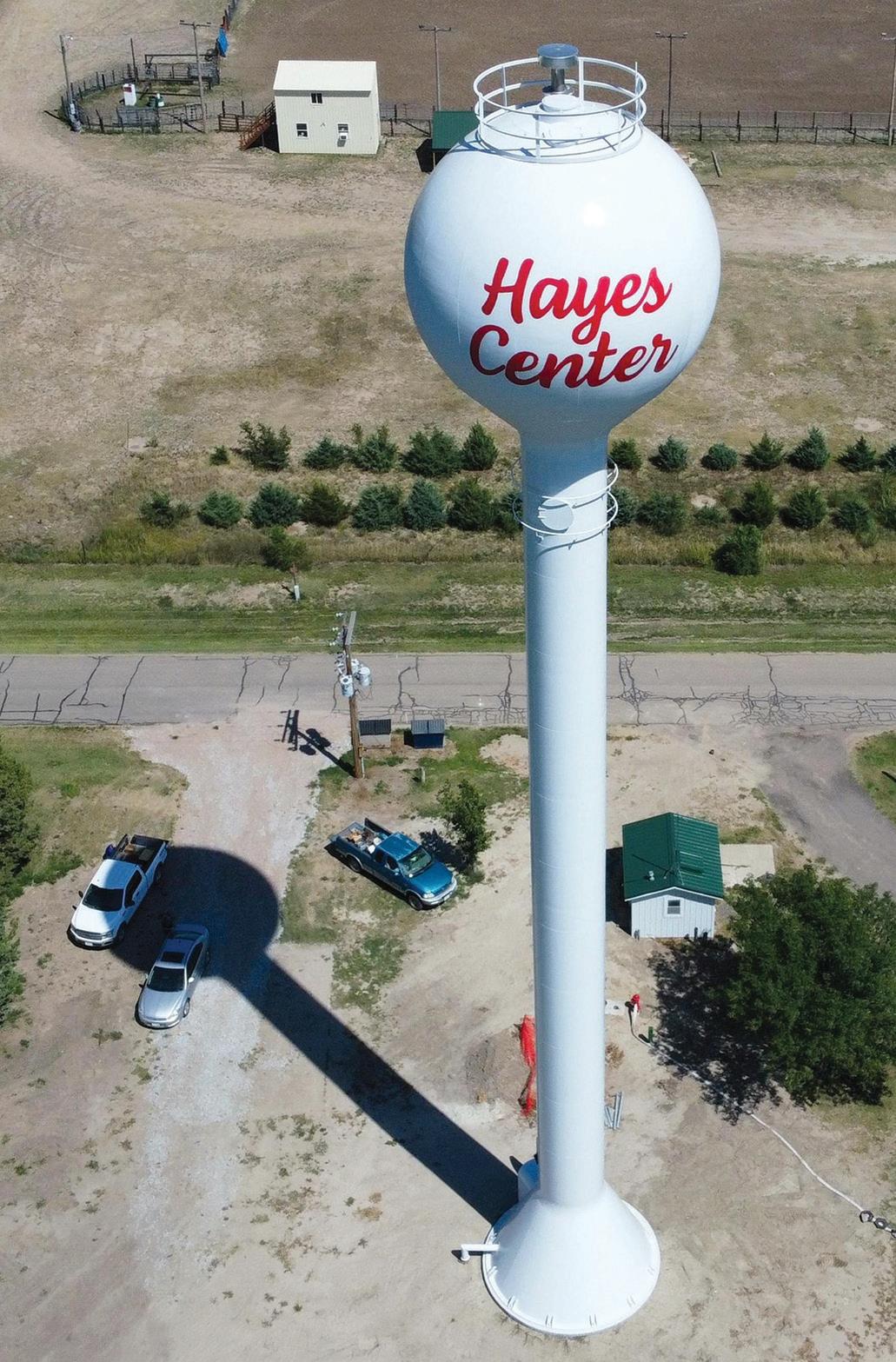
Water and Environmental Program loan and grant funds were used to replace the water tower, distribution main, and new SCADA controls on the existing well in Hayes Center. Photo provided by USDA RD.
How may funds be used?
To finance the acquisition, construction, or improvement of drinking water sources, treatment, storage, distribution, sewer collection, transmission, treatment, disposal, solid waste, and storm water systems.
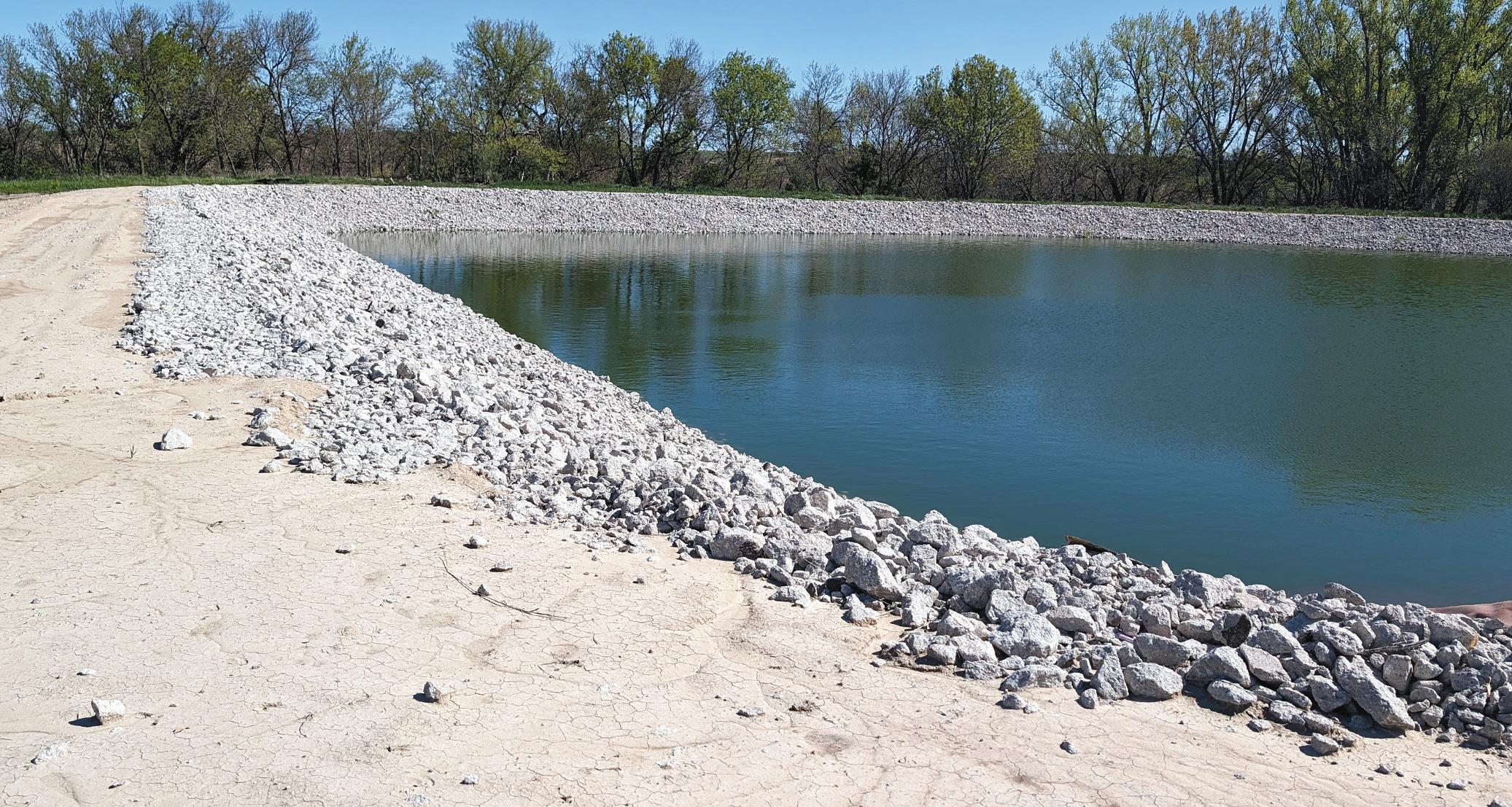

To learn more about any of the USDA Rural Development Programs that might be of value to your community, visit its website at rd.usda.gov/ne or call the USDA RD main line at (402) 437-5551.
OnJune 2, 2025, Nebraska’s new State Director, Neil Moseman, joined the Rural Development team. Mr. Moseman grew up on a family farm operation in Burt County. Neil’s family has roots in Nebraska agricultural production going back over 140 years, providing for a strong understanding of Nebraska’s rural citizens and their culture.
After graduating from the University of Nebraska’s agricultural economics program, Neil entered the U.S. Navy. Serving aboard the USS California (CGN36), he deployed several times to the Middle East and Indian Ocean.
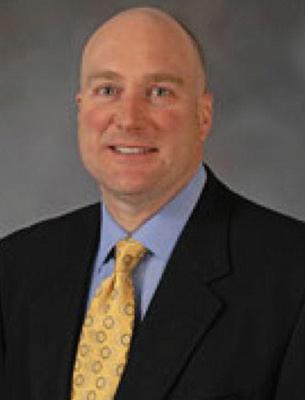
in Washington, DC, Neil also served in the Office of U.S. Senator Chuck Hagel and as Vice President of the U.S. Beet Sugar Association.
Neil returned to Nebraska and entered state government service. From 2008-2010, Neil served as the first Director of the Nebraska Energy Office, a position appointed by Governor Dave Heineman. Prior to that time, Neil served in the Governor’s Policy Research Office and as Assistant Director for the Nebraska Department of Agriculture.
Post military, Neil served on Capitol Hill as a Staff Member for the U.S. House of Representatives’ Agricultural Committee where he worked to support our nation’s farmers and ranchers. During his time
From 2013-2025, Neil served in the Office of U.S. Senator Deb Fischer as Policy Director for Agriculture and Energy in Nebraska. He has also worked with Nebraska’s Native American Tribes on domestic matters. Neil is honored to have the opportunity to lead and serve the great state of Nebraska and looks forward to meeting so many of the people that Rural Development has the opportunity to serve.
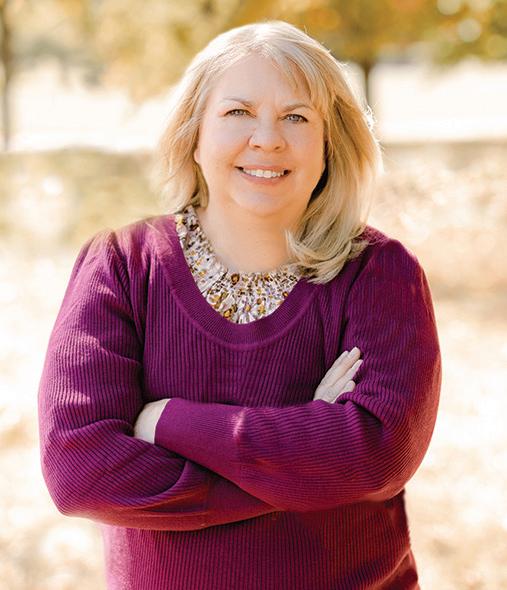
BY JULIE HARRIS, EXECUTIVE DIRECTOR, BIKE WALK NEBRASKA
We are proud to report that our Vulnerable Road User (VRU) bill will become law, thanks to Sen. Kathleen Kauth for her leadership in sponsoring this bill. What does this mean for your community members?
• “Vulnerable Road User” is defined in the state statute. The definition includes people biking and walking, but also other folks in vulnerable situations like road construction workers and law enforcement officers stopped on the side of the road.
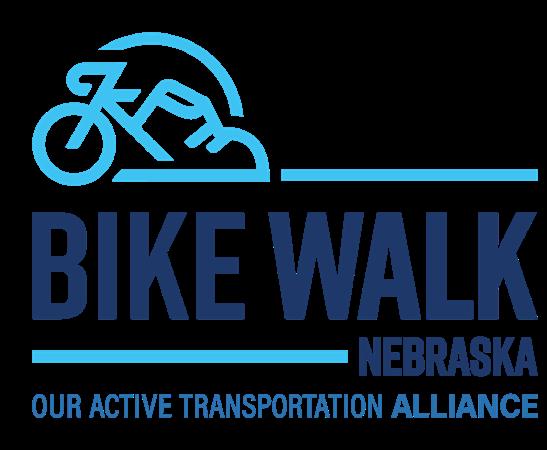
• Enhanced options for judges when sentencing drivers involved in serious injury/fatal crashes with VRUs;
• Increased fines for excessive speeding;
• Upgraded the 3-foot passing law, requiring drivers to “change lanes to pass when possible” when encountering a vulnerable road user.
In another notable win to support your community's trail efforts, the Nebraska Trails Foundation worked with Sen. Robert Dover to pass a bill that will provide property tax credits to landowners who provide trail easements.
Left on the cutting room floor were two bills we strongly supported allowing for automated enforcement (safety cameras) for speeding in school and construction zones, as well as for red light running.
The 109th session of the Nebraska Legislature is now in the rearview mirror, providing an opportunity to reflect on the outcomes for safe biking and walking. Bike Walk Nebraska was following a dozen bills; although some opportunities were left on the cutting room floor, it was a successful session. As always, if Bike Walk Nebraska can assist your community with issues related to person-powered transportation, never hesitate to contact us. You can find out more about our mission at www.bikewalknebraska.org.
Neither safety camera bill made it through, but productive conversations were had, leading to the creation of an Interim Study. With 25% of pedestrian and bicyclist crash victims in 2024 being minors and speeding being a consistent contributing factor, it's imperative to support safety initiatives for schoolchildren. We know safety cameras can be an effective tool in changing driver behavior in keeping speeds down, but it is a complex issue.
Our biggest disappointment came with the state budget that was passed this session. The $8.3 million allocated by the Unicameral in 2022 for use to connect the gap in the MoPac Trail was reduced to $5 million in a rescission. The Appropriations Committee faced a challenging task in addressing the state's budget shortfall this year. While we are disappointed to see some of the MoPac funds had to be clawed back, we understand the challenge the Senators faced.
All in all, we came out ahead this year in the Unicameral. Policy helps pave the way and ease your community's efforts in biking, walking, and connectivity. We are thrilled that the Vulnerable Road User law passed, and we look forward to leveraging the momentum to continue the conversation regarding the safety camera issue.
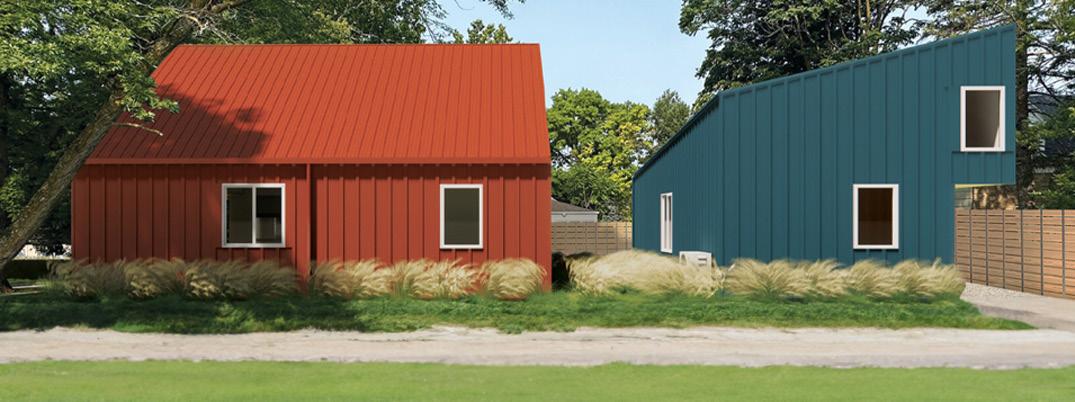
Three Nebraska organizations are recipients of AARP’s 2025 Community Challenge grant funding. The organizations—Nebraska Investment Finance Authority (NIFA), Partners for Livable Omaha, and Project Houseworks have quick-action projects aimed at making communities more livable for people of all ages, with a focus on the needs of older adults. The funds will support efforts to improve public places, transportation, housing, digital connections, and other key areas.
AARP Nebraska is committed to working with communities across the state to help make them more livable for people of all ages,” said Todd Stubbendieck, State Director for AARP Nebraska. “These projects are about turning great local ideas into real improvements that make everyday life better, especially for Nebraskans 50 and older.”
Three Nebraska organizations have each been awarded $15,000 under AARP’s ‘Flagship Grant – Housing’ category, supporting local efforts to enhance livability and strengthen neighborhoods across the state.

This project will create zoning and design standards for modular housing in rural Nebraska, providing affordable homeownership opportunities for families and older adults. The initiative aims to enhance neighborhood experiences and support community stability.
The OurStory housing system will introduce small, aging-ready homes for people age 50+ in Nebraska. The project includes two design variations, Corby House and Benson House, and seeks funding to support an architectural internship program and public education efforts.
This project provides no-cost home repairs and safety modifications for low-income older adults in Nebraska’s Douglas and Sarpy Counties. Upgrades like walk-in showers and HVAC repairs support independence, reduce falls, and enhance home safety, improving health outcomes, and housing stability.
Source – AARP Nebraska
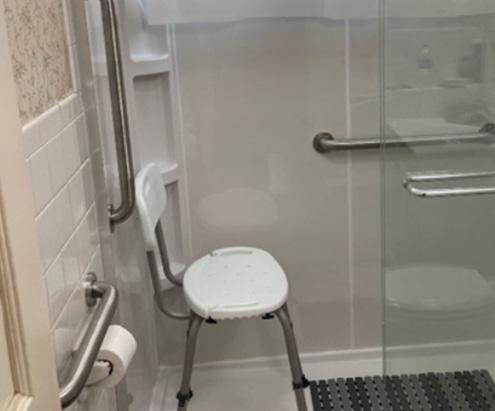

BY ANDREW WILLIS, CLINE WILLIAMS WRIGHT JOHNSON & OLDFATHER, L.L.P.
Property assessed clean energy (“PACE”) is a financing tool that allows municipalities to assist developers with financing up-front construction and installation costs for energy enhancements that will lead to energy costs savings over the life of a project. According to one report in January 2025, 40 states and the District of Columbia have enacted PACE laws, and the loan volume for PACE financing has increased by an average of 50% each year over the past five years.i
The Nebraska Property Assessed Clean Energy Act (the “PACE Act”)ii, was passed in 2016 to support the installation and use of energy efficient and renewable energy systems. The Nebraska Legislature acknowledged that the high up-front costs of energy efficiency and renewable energy systems are a barrier to installation and construction, despite the long-term savings to the owner and the benefits to the community and the environment. The PACE Act provides municipalities with the authority to help finance the installation of energy efficiency improvements and renewable energy systems through a voluntary property assessment imposed on a property owner.
Implementing a PACE program provides one more tool in a municipality’s economic development toolbox, because financing through PACE assessment as an alternative to conventional lending can be very beneficial to certain development projects. This article provides a general overview of how a municipality can implement PACE and the general obligations of a municipality for a PACE project. iii
The key to PACE financing is a voluntary property tax assessment against real property that is used to finance the costs of an approved energy project on that property. The PACE Act defines “energy project,” “energy efficiency
improvement,” and “renewable energy system project,” but these definitions are broad: in general, any costs related to construction or installation of equipment that will increase energy efficiency or decrease energy consumption are eligible.iv The PACE assessment is levied against the property and is paid as part of the property owner’s real estate taxes.
The PACE assessment can equal the total costs of the eligible energy project amortized over a term equal to the weighted average useful life of the energy improvements.v
There are multiple aspects of PACE financing that make it attractive to lenders, and therefore beneficial to a development project. For example, because the term of the assessment can be up to the weighted average useful life of the energy project, PACE will provide a longer fixed interest rate term than a conventional loan—often 20 years or longer. Additionally, default on a PACE Assessment is enforced by a tax lien rather than a mortgage or deed of trust, and the tax lien takes priority over other debt on the property. And because the loan is protected by the superpriority of a tax lien, the interest rate is often lower than a comparable conventional loan.
The PACE Act allows a municipality to issue bonds to finance a PACE loan, but typically a third-party lender that specializes in PACE loans (“PACE Lender”) provides the financing and the municipality simply facilitates the assessment to pay the PACE loan. This limits the risk and exposure of the municipality while still creating the benefit to the project.
1. Creating a PACE District.
In order to implement PACE financing, a municipality must first create a clean energy assessment district (“PACE District”). vi A PACE District is simply the designated area in which the use of PACE financing is authorized. A municipality can create one or more PACE Districts,
which can include up to all of the corporate limits and the extraterritorial jurisdiction of the municipality.
The City Council or Village Board must first hold a public hearing before approving a PACE district. Notice of the public hearing must be published at least ten days prior to the hearing.vii Following the public hearing, a Pace District may be created by ordinance.viii
The PACE District ordinance must include all of the necessary details to implement PACE financing including, among other things, the application process and eligibility requirements for PACE and the form of assessment contract the municipality will use for PACE Projects. ix The city or village should make sure the PACE District ordinance is thorough and includes detailed requirements for the municipality’s PACE program. Establishing a PACE Program Manual with all the application requirements, cost and benefit verification parameters, and other information will make the implementation of PACE much simpler when applicants make a request for PACE financing.
After the municipality has established a PACE District, individual PACE projects may be approved in the district. This process starts when an applicant submits a PACE application in the required form approved by the municipality in the PACE Ordinance. The application includes information about the project, including technical information on the costs, energy savings and estimated economic benefits of the project, as required in the PACE Program Manual. Typically, the PACE Lender or a consultant is working with the applicant to complete the application and provide the required information.
Continued on page 29 / See PACE

BY LIZ STEWART, CENTER FOR RURAL AFFAIRS
Many rural communities in Nebraska will encounter issues with water system contamination at some point. When this happens, community leaders and residents will likely be left with questions and concerns about the quality and safety of their drinking water.
Leaders of rural communities have a reliable resource just a phone call away: the Nebraska Department of Water, Energy & Environment (NDWEE). The department helps community leaders figure out next steps and provides technical assistance and resources when possible.
Staff from the Center for Rural Affairs occasionally meets with NDWEE officials to discuss new opportunities, and Lisa Giesbrecht, environmental specialist with the state’s revolving fund section, planning and aid division of NDWEE, shared her thoughts on how her department can help when a water crisis occurs.
Rural communities and larger cities face the same concerns when it comes to issues with their drinking water. The main problems are maintaining compliance with the state’s Safe Water Drinking Act and replacing aging infrastructure before it fails.
“Compliance concerns with municipal water supplies are challenging to treat or remedy without costly solutions,” Lisa said. “Rural communities often face those same added challenges but with smaller service populations, reduced number of system staff, and less resources to address all those concerns.”
The most common contaminants found in Nebraska drinking water wells are nitrate, arsenic, uranium, and, in certain parts of the state, selenium. Elevated nitrate is found in wells at various depths and locations across the state, whereas arsenic and uranium are specific to locations where they are already present in the bedrock material and/ or silt and clay formations within the aquifer.
“All rural communities need to proactively plan for increasing water user rates to properly budget for the replacement of aging infrastructure,” Lisa said. “The state’s revolving loan fund can help but cannot solve that problem alone. All of Nebraska’s towns need to budget today for when their systems have to address that inevitability.”
The Nebraska Drinking Water State Revolving Loan Fund exists to help rural communities with emergency and non-emergency water contamination issues. The interest rate for this loan is often 0%, or very low.
Project managers in NDWEE’s state revolving fund section work with communities to develop loans and provide assistance and information so they can meet federal and state loan requirements.
“Currently, we are working on replacing aging water infrastructure
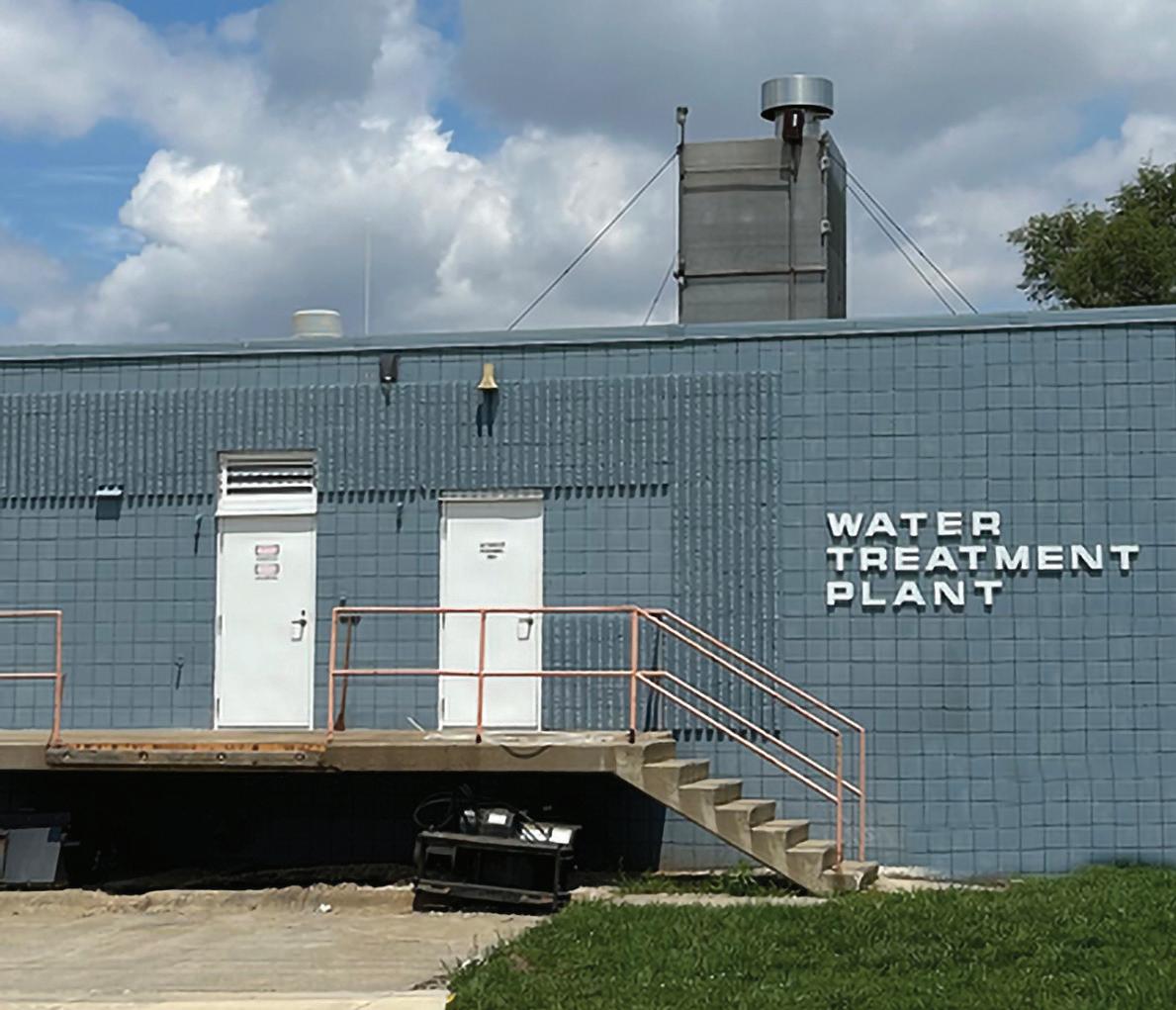
or making improvements to existing infrastructure,” Lisa said. “These projects can consist of water main replacements, new wells, new water towers, and/or updating and improving water treatment plants.”
To get help during crises, community leaders must follow crucial steps. While it may seem like a lot to take on, the assistance received may be worth the effort in the long run.
To be eligible for revolving loan funds, community leaders need to first see if their public water supply systems meet the requirements of the Drinking Water State Revolving Fund Act and Nebraska Administrative Code, Title 131.
From there, they should complete and submit the Combined Clean Water and Drinking Water Needs Survey every other year. The next survey will be sent out in fall 2025 and is due in January 2026. This survey is used to develop and prioritize projects, which are then included in NDWEE’s Intended Use Plan.
Next, leaders must submit a preapplication and Preliminary Engineering Report for their project to the Water Wastewater Advisory Committee, made up of the NDWEE State Revolving Fund Program and the U.S. Department of Agriculture Rural Development Water and Environmental Programs. Funding options from both programs are provided for the applicant, who then has the opportunity to choose which ones will work best for a given situation.
If rural community leaders need to test their drinking water system, NDWEE can help once certain actions are taken. The type of assistance available from the revolving loan funds can only be determined after a review of their Preliminary Engineering Report, which is submitted according to Title 131 regulations. Revolving loan funds can reimburse the cost of a Preliminary Engineering Report once a loan agreement is signed, as long as the community saves invoices and submits them when the time comes.
After eligibility is determined, NDWEE officials will take water samples to test systems for unhealthy chemicals and toxins. More than 95 contaminants are routinely tested for, and NDWEE is the first to receive the results. When an issue is found, the Drinking Water Program immediately notifies community water operators and other local officials.
“One of the most important actions that public water systems take to mitigate exposure risk is public notification,” Lisa said. “Public notification requirements range from hand delivery to every consumer’s house within 24 hours, to providing continuous notification via physical or electronic posting of notices. These notices have information on the health effects of contaminant exposure and describe actions consumers should take, like if they should boil their water prior to, or immediately cease, consuming the water.”
Public notices also need to include information about where people can get bottled water or other alternate sources of safe drinking water. Systems are required to provide an alternate source in the event of an acute concern—when a susceptible person could suffer negative health impacts after one drink of water.
If a public water system can’t fix the issue in a timely manner, the Safe Drinking Water Act requires the NDWEE to establish timelines for systems to reach a permanent solution. This commonly includes construction of a new well, treatment plant, or transmission main that connects to another community’s system.
The length of time it could take for water systems to return to normal ranges is from a few days to almost a decade, depending on the contaminant for which the water is treated.
“In Nebraska, we focus a lot on groundwater quality concerns, because the majority of our communities drink untreated groundwater,” Lisa said. “Unfortunately, solutions for groundwater polluted with nitrate or atrazine, or aquifers with naturally occurring arsenic or uranium are extremely expensive and time-intensive. NDWEE requires
communities to be distributing compliant water again within three years of violating a standard. However, many times that deadline becomes unachievable due to constraints on funding, labor, and supplies.”
NDWEE works closely with these communities to do what it can to help bring the systems back into compliance as quickly as possible. If a water system goes through treatment, ongoing maintenance is required according to the manufacturer's specifications, which can be different for each type and size of treatment device.
Whether it’s providing resources or technical assistance, NDWEE can offer help through the Capacity Development Program, which supports communities with populations less than 10,000.
“Utilizing the Drinking Water State Revolving Loan Fund, the program provides technical, managerial, and financial management resource assistance to public water systems,” Lisa said. “The Capacity Development Program can provide education or resources using technical assistance providers to go out into the field and work with public water utilities on a variety of issues.”
In addition, NDWEE’s Wellhead Protection Program works with communities that voluntarily participate to outline wellhead protection areas, which identify the sensitive areas surrounding the public water supply wells.
The program guides community leaders through a process designed to protect their water supply. This includes identifying potential sources of contamination, developing a plan to manage those contaminants, and preparing the community to handle emergencies and long-term changes to its water supply.
NDWEE provides guidance and technical assistance in drafting Wellhead Protection Plans as well as funding for planning activities through Source Water Protection grants. The Source Water Protection Program provides proactive support to communities where contaminant levels show an upward trend. This program supports the development and implementation of projects and management plans focused on safeguarding the sources of public drinking water.
“By promoting preventive measures, the Source Water Protection Program helps mitigate risks to public health and safety, lower water treatment costs, and potentially delay the need for costly engineered water quality solutions,” Lisa said. “Additionally, the program provides outreach materials that will facilitate effective community engagement. Once we know the needs of the community and a project is ready to proceed, we work with them to get the best funding fit and meet the various requirements by providing guidance.”
ACE (Public Alliance for Community Energy), the community-owned natural gas commodity supplier, presented Project of the Year awards to three of its member communities at the NMPP Energy Annual Conference. Through its revenue return program, ACE returns funds to its 75 Nebraska member communities. These funds are used by each community for various community betterment projects. Earlier this year, the ACE Board of Directors approved returning $400,000 to its Nebraska member communities. Since forming in 1998, ACE has returned more than $4 million to its Nebraska member communities.
Communities submitted project nominations and winners were determined through voting on ACE’s Facebook page. The awards were presented in three community population categories. The following projects were awarded a plaque and $200 to be used toward future community betterment projects:
(Population less than 800)
The Village used its ACE funds to install a splash pad for its community swimming pool. The splash pad is the only one in Box Butte County and took four years of fundraising and grant-writing efforts along with ACE funds. The splash pad is a beneficial outdoor recreational resource for the well-being of the community that will be enjoyed for many years.
(Population 800-2,000)
The City of Bridgeport used its ACE funds to upgrade its Veteran’s Memorial Park, including renovating the park’s swimming pond. Work included dredging the pond to expose clean habitat for fish, adding jetties for fishing and making safety improvements to walkways and roads. Last Memorial Day, the park was dedicated to Morrill County veterans. Future enhancement plans include adding an American with Disabilities Act compliant dock and shelter.
(Population more than 2,000)
The City of Gothenburg took an aging, dilapidated playground with no shade and turned it into a vibrant, multi-faceted recreational space for the community. The playground caters to children of all ages and abilities, enhancing play and social interaction, while the picnic shelter provides a gathering place for celebrations and families. The project was a collaborative effort, and ACE funds were used for the construction of the family shelter and playground. This recreational space is a significant step toward building a healthier, more engaged and interactive community.
Nebraska communities formed ACE to provide competitively priced natural gas while retaining local control and keeping more revenue in Nebraska’s ACE member communities.
Source – NMPP
D.A. Davidson & Co. is committed to strengthening the infrastructure and enriching the lives of people in our communities throughout Nebraska and across the nation.
Our bankers specialize in:
• Bond Anticipation Notes
• Paving Bonds
• Water and Sewage Bonds
• General Obligation Bonds
• Utility System Revenue Bonds
• Lease-Purchase Financing
Call: (402) 392-7986 | Paul Greiger (402) 392-7989 | Cody Wickham (402) 392-7988 | Andy Forney (402) 392-7933 | Jerry Spethman


Continued from page 25
The municipality must review the PACE application to verify that the proposed project meets all the statutory requirements.x The municipality may designate an official to undertake the initial review and required validation of the application, but the City Council or Village Board is the governing body for any PACE District and ultimately approves the project and the assessment contract.xi
After verifying eligibility and approving the application, the municipality may enter into an assessment contract with an owner and the PACE Lender.xii The assessment contract is the key document for the municipality. The assessment contact sets forth all the terms of the imposition and enforcement of the PACE assessment. A copy of the Assessment contract is recorded with the Register of Deeds and provided to the County Assessor.
3. Implementation of a PACE Project
Once a PACE Project has been approved and the assessment contract has been executed, the annual assessments agreed to in the assessment contract are levied against the property. These assessments are collected at the same time and in the same manner as property taxes are levied and collected, except that the assessment contract may authorize the owner to pay the assessments directly to the PACE Lender.xiii Authorization of direct payment to the PACE Lender can reduce the municipality’s administrative obligations for a PACE Loan. If direct payment to the PACE Lender is authorized in the assessment contract, then the PACE Lender has the obligation to notify the municipality if an assessment becomes delinquent.
The municipality’s other potential obligation under the assessment contract is to enforce a delinquent assessment. If the property owner does not pay any assessment when due, the municipality shall record a notice of the PACE lien with the Register of Deeds. A PACE lien has the same priority and status as real property tax liens, and may be enforced in the same manner as a real property tax lien.xiv Finally, any municipality with any active PACE Projects has an annual reporting requirement. On or before January 31 of each year, the municipality must submit a report to the Urban Affairs Committee of the Legislature describing the PACE Projects and the dollar amount of projects and annual assessments.xv
Conclusion
PACE financing is an additional tool a municipality may use to assist developers with local projects, if a municipality
authorizes the use of PACE. PACE can be used to finance energy efficiency and renewable energy costs as part of a new construction or rehabilitation project. A city must create a PACE District and be prepared to undertake the implementation and administration of an assessment contract to implement a PACE Project, but a PACE program could attract new development to a community, or encourage the development of more energy efficient and environmentally sustainable projects that otherwise would not be cost effective for the developer. In a tough economic environment, this could be the difference between project feasibility and infeasibility, or a project looking at another community with additional financing incentives.
Editor’s Note: This article is not intended to provide legal advice to its readers. Rather, this article is intended to alert readers to new and developing issues. Readers are urged to consult their own legal counsel or the author of this article if they wish to obtain a specific legal opinion regarding their particular circumstances. The author of this article, Andrew R. Willis, can be contacted at Cline Williams Wright Johnson & Oldfather, L.L.P., 233 S/. 13th Street, Suite 1900, Lincoln, NE 68508, (402) 479-7151, awillis@clinewilliams.com, or www.clinewilliams.com
i https://www.moodyscre.com/insights/cre-news/risingin-popularity-a-c-pace-primer/
ii Neb. Rev. Stat. § 13-3201 through 13-3211.
iii This article presents a general overview of PACE financing, but it does not address all of the legal issues that will arise in any specific project or situation. In particular, please note that the PACE Act has different rules for residential properties and commercial properties, and this article focuses solely on the rules for commercial properties.
iv See definitions of “energy project,” “energy efficiency improvement,” and “renewable energy system” in Neb. Rev. Stat. § 13-3203.
v Neb. Rev. Stat. § 13-3203(1).
vi Neb. Rev. Stat. § 13-3204(1).
vii Neb. Rev. Stat. § 13-3204(2).
viii Neb. Rev. Stat. § 13-3204(3).
ix Id.
x Neb. Rev. Stat. § 13-3205(2).
xi Neb. Rev. Stat. § 13-3204(1).
xii Neb. Rev. Stat. § 13-3205(1).
xiii Neb. Rev. Stat. § 13-3205(7)
xiv Neb. Rev. Stat. § 13-3206(3)
xv Neb. Rev. Stat. § 13-3211.
Topic: Municipal-owned utility disconnection

The League is often asked questions about whether it is permissible for a municipal-owned utility to disconnect utility service for non-payment during periods of extreme temperatures. Below is an overview of some of the stipulations and most frequently asked questions.
Is it permissible for a municipally owned utility to disconnect utility service for non-payment during periods of extremely high or low temperatures?
LNM
Yes, it is permissible for a municipal water, electric or natural gas utility to disconnect utility service during periods of high or low temperatures as long as the municipality first gives written notice by mail to any subscriber whose service is proposed to be terminated at least seven days prior to termination. Weekends and holidays do not count towards the seven days.
Is there any language that must be included in the notice?
Yes. The language in the notice must include this exact language relevant to the temperature: A statement to the effect that disconnection shall be postponed or prevented upon presentation of a duly licensed physician’s, physician assistant’s, or advanced practice registered nurse’s certificate, which shall certify that a domestic subscriber or resident within such subscriber’s household has an existing illness or handicap which would cause such subscriber or resident to suffer an immediate and serious health hazard by the disconnection of the utility’s service to that household. Such certificate shall be filed with the utility within five days of receiving notice under this section, excluding holidays and weekends, and will prevent the disconnection of the utility’s service for a period of at least 30 days from such filing. Only one postponement of disconnection shall be required under this subdivision for each incidence of nonpayment of any past-due account.
The disconnect language must also contain the following:
• The reason for the proposed disconnection and a statement of intention to disconnect unless the domestic subscriber either pays the bill or reaches an agreement with the utility regarding payment of the bill;
• The date upon which service will be disconnected if the domestic subscriber does not take appropriate action;
• The name, address, and telephone number of the utility’s employee or department to whom the domestic subscriber may address any inquiry or complaint;
• The domestic subscriber’s right, prior to the disconnection date, to request a conference regarding any dispute over such proposed disconnection and a statement that the municipality may not disconnect service pending the conclusion of the conference;
• The cost that will be borne by the domestic subscriber for restoration of service and a statement that the domestic subscriber may arrange with the utility for an installment payment plan;
• A statement to the effect that those domestic subscribers who are welfare recipients may qualify for assistance in payment of their utility bill and that they should contact their caseworker in that regard.
LNM
The Nebraska Public Service Commission does have a “cold weather rule” that prohibits natural gas disconnection during periods of cold temperatures but that rule only applies to privately-owned utilities regulated by the Commission and not to municipal utilities.
LNM
After the appropriate amount of days, a municipality can disconnect a service for non-payment unless the customer takes one of two actions. First the customer can in writing request a “conference” to discuss the bill. In a village the conference is with the village board. In a city, the conference is with a designated employee. The city must schedule a conference within 14 days of the receipt of the customer’s request for a conference, and notify the customer in writing of the time, place, and date scheduled for the conference.
LNM
Yes, a public or private utility company can not charge a fee for the discontinuance or reconnection of utility service that exceeds the reasonable costs of providing such service.
As always, if you have additional questions about utility disconnections, please consult with your municipal attorney.

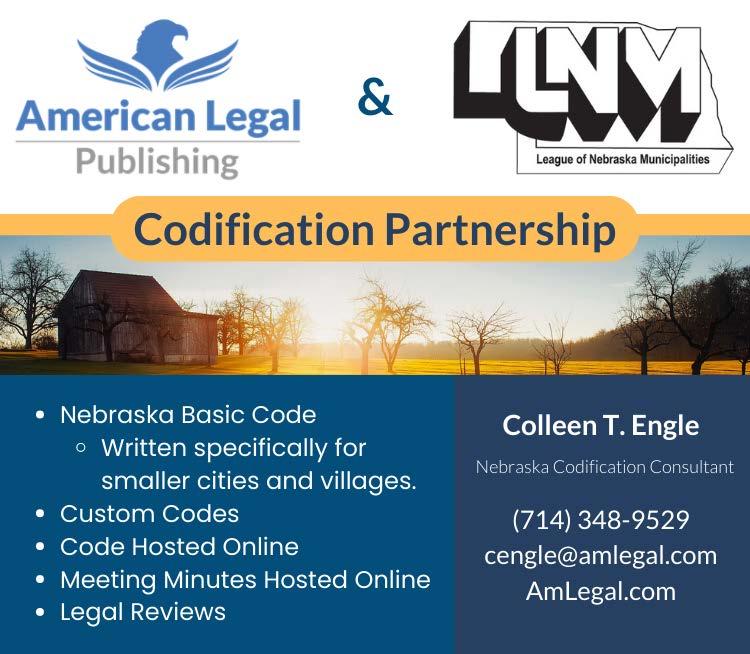

MUNICIPAL CODE SERVICES, INC.
MUNICIPAL CODE REVISION
BASIC CODE FOR SMALL VILLAGES
UPDATING FOR AMERICAN LEGAL AND OTHER CODES
UPDATING FOR ZONING REGULATIONS POLICY MANUALS
Personal Service / Nebraska Company P.O. Box 164, Neligh, NE 68756 Phone 402.887.5022 leagle@mcnallylaw.net www.mcodeservices.com


